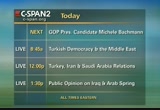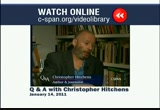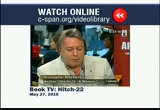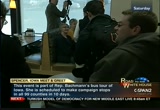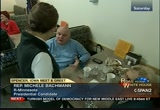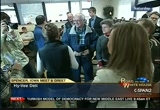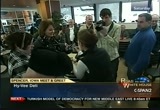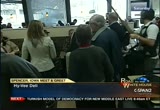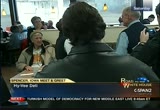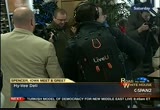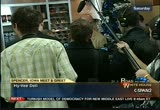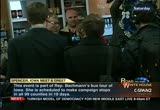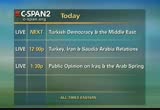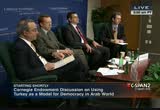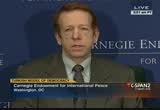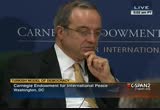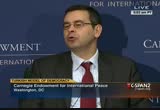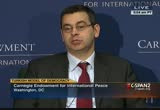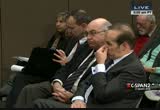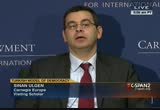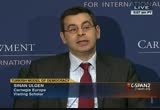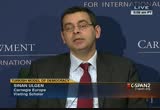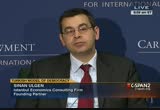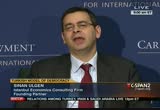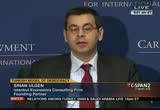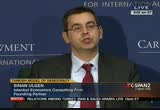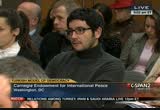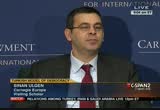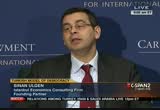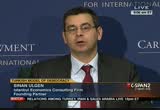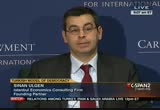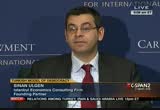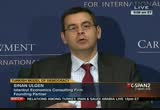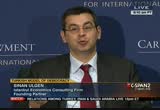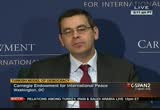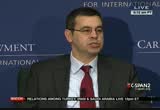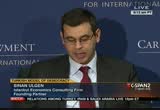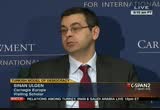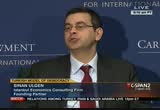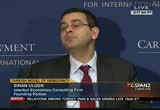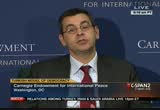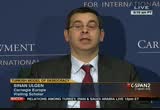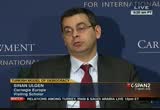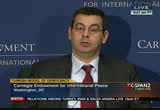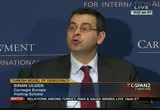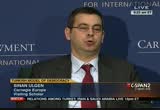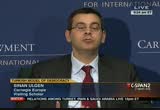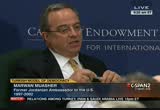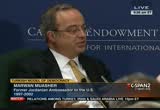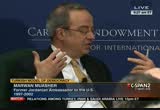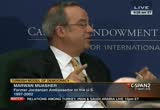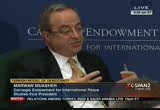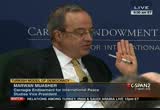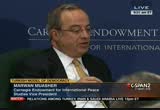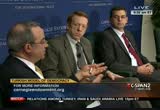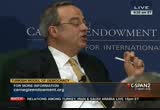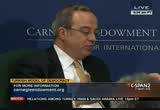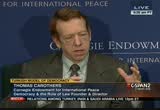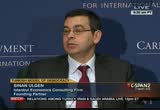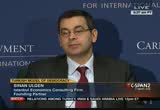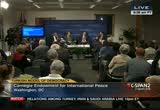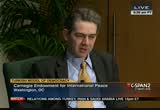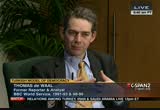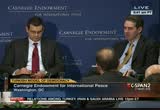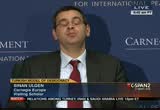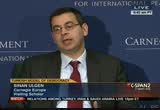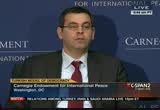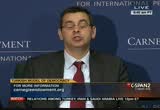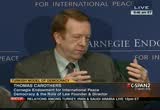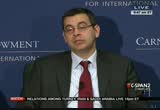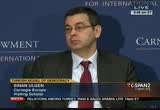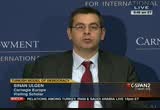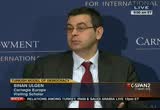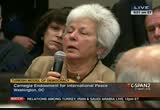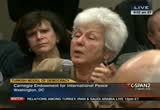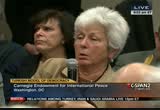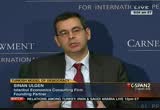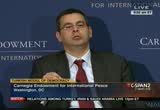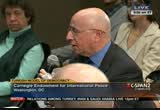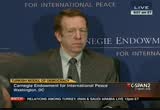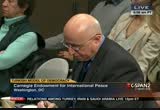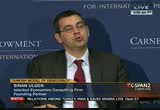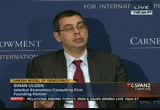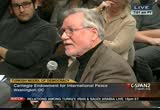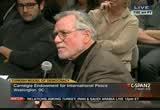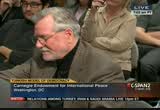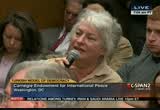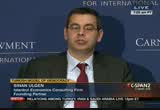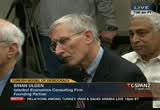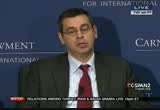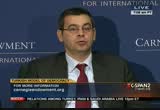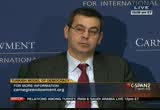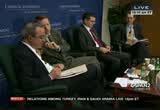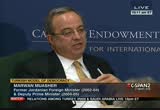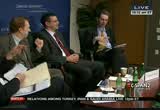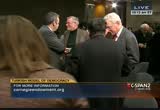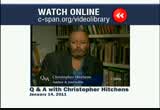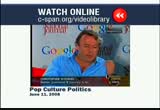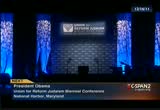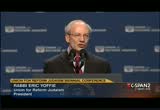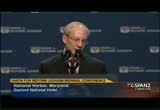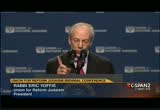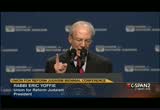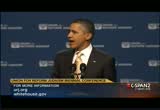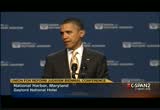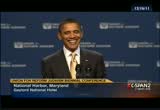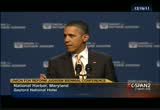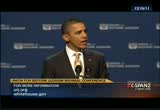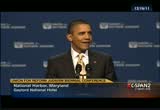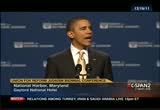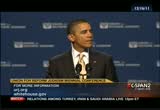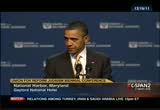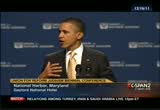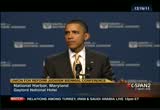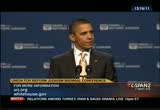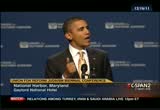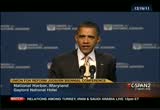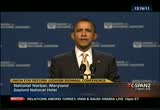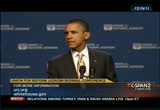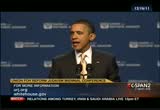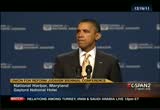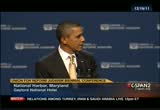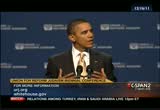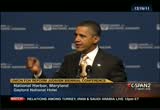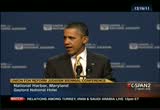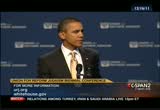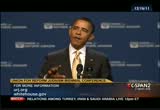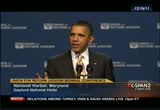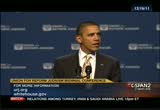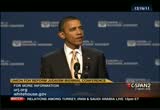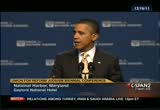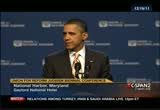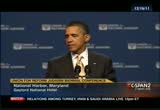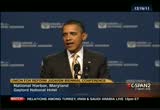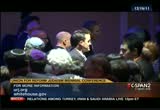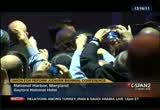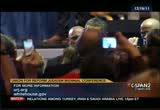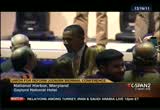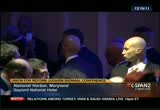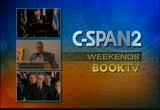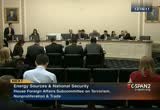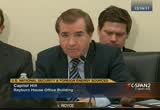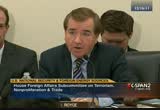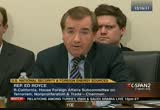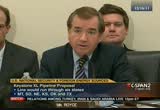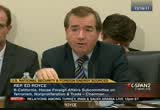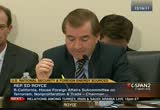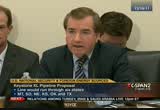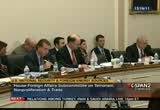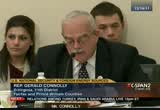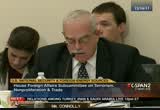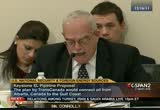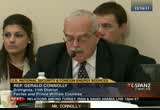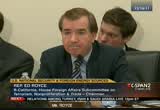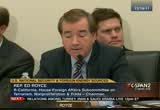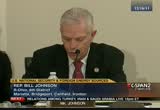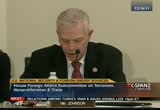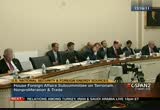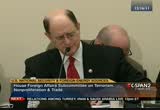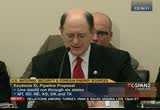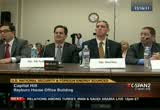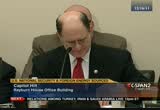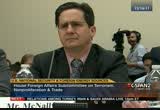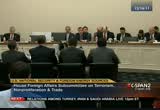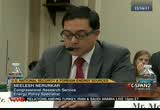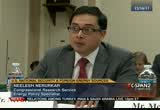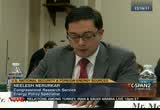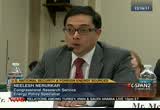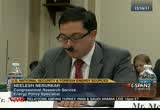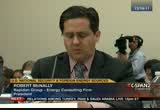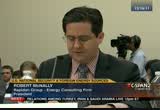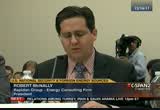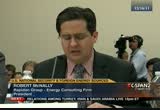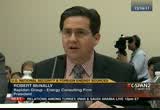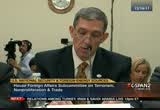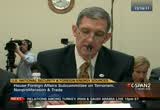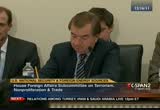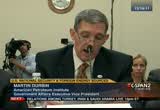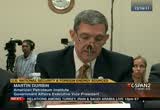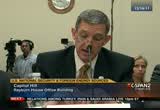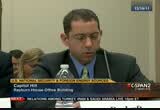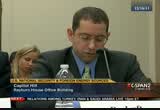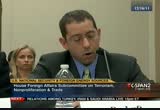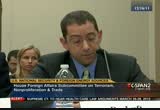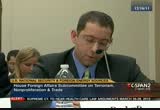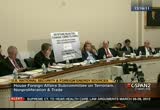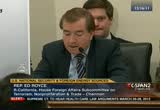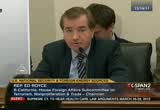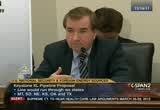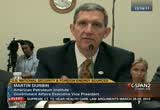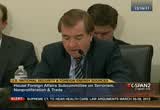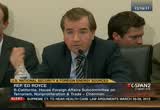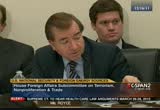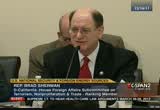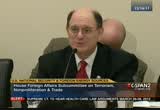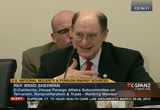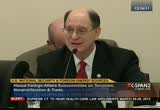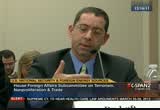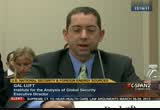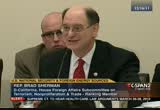tv U.S. Senate CSPAN December 19, 2011 8:30am-12:00pm EST
8:30 am
relationship mock turkey, iran and saudi arabia. and later, a look at middle east and u.s. public opinion on the arab spring. the u.s. withdrawal from iraq and other developments in the reek. region. >> i always knew that there's a risk in the bohemian lifestyle, and i decided to take it was where it's an -- because whether it's an illusion or not, i don't think it is, it helped my concentration, it stopped me being bored, stopped other people being boring to some extent. it would keep me awake, it would make me want to let the evening go on longer to put on the conversation, to enhance the moment. if i was asked would i do it again, um, the answer's probably, yes. i'd have quit earlier, possibly, hoping to get away with the whole thing. easy for me to say, of course, not very nice for my children to hear. it sounds irresponsible. if i say, yeah, i'd do that all
8:31 am
again to. and i decided all of life is a wager. i'm going to wager on this bit. and i can't make it come out any other way. it's strange, i almost don't even regret it, though i should. because it's just impossible for me to picture life without wine and other things fueling the company. and keeping me reading and traveling and energizing me. it worked for me, it really did. >> thursday, journalist, author, critic and "vanity fair" columnist and editor christopher hitchens passed away at the age of 62 for complications of cancer. watch his nearly 100 c-span appearances all archived and searchable online at the c-span
8:32 am
video library. >> republican presidential candidate and u.s. representative michele bachmann is on a bus tour through iowa which began thursday in sioux city. she's scheduled to visit the state's 99 counties in ten days before the iowa caucuses on january 3rd. on saturday her first campaign stop was in clay county at the hy-vee deli in spencer. she was joined by her husband, marcus. [inaudible conversations] >> good morning. good morning. how are you? thank you. i'm happy to be here. this is like the spot to be in town, isn't it? >> where are you from? >> waterloo. i was born in waterloo and raised in cedar falls, but our family's been here since 1850. it's all northeast iowa. my mom went to luther college -- >> [inaudible] >> i went up at winona state. winona, minnesota, do you know where that is? >> yeah. >> that's where i met my
8:33 am
husband, he was a farmer. -- [inaudible] >> now we live in minnesota, stillwater. that's right on the border. so, yeah. but we s sure are enjoying being down here. >> good. >> this is a nice hy-vee, too, isn't it? yeah, well, yeah. well -- [inaudible conversations] how are you? hi, linda, i'm michelle. nice to meet you. and you are -- >> i'm helen.llo, >> you're helen. and you've been already doing your shopping. >> linda has. is >> linda has. you well, you got your rc cola anyway, that's good. good for you. and is that herring? my mother loves herring. >> [inaudible] >> oh, really?r lo so you bought it for your mom? aren't you a good daughter?for >> [inaudible] >> oh, good to meet you. we were in storm lake last night. we were at the coffee shop. >> [inaudible] wer be.
8:34 am
>> oh, really? okay. yes, we did. we were there last night. [inaudible conversations] looks like you had a good breakfast. >> oh, yeah. >> oh, good. [inaudible conversations] >> really? oh, my goodness. oh, good for you. well, you know -- [inaudible] the debate's going to be on again tonight, 8:00. [inaudible conversations] january 3rd, we're going to -- [inaudible] >> good luck there. >> bring 'em out. hey, what's your name? >> dennis. >> hi, dennis.name >> [inaudible] >> thank you. you tell everybody you know, will you? thank you, dennis. [inaudible conversations] >> good to see you both. oh, i thought you had a camera.h >> [inaudible] >> oh, i heard that. well, i'm glad you came here.
8:35 am
sorry if there was any confusion, i'm glad that you're here. >> [inaudible] [laughter] >> i think they've got some cameras here. [inaudible conversations]e so tell me what your name is. >> rihanna. i'm going the say rihanna is an excellent student. [inaudible conversations] how's that? there you go. how are you? oh, thank you so much for comin. out on a saturday morning. that's so nice of you. what's your name? >> larry. >> hi, larry.rday i'm so glad that you came out. >> [inaudible] >> aren't you nice? january 3rd, i need your vote. >> i will. >> [inaudible]
8:36 am
[inaudible conversations] >> thank you. tell everybody you know january 3rd, come out and vote for me. >> yes. >> okay. well, we're going to take a picture right here. what's your name? oh, good to meet you. hi, good to meet you.ou. [inaudible conversations] >> oh, thank you. >> that makes a 55-year-old 5 woman feel good. >> we are going to take a picture.o >> thank you very much. >> i think that's your sharpie. >> actually, i took it from work. >> okay -- these are the wise guys, i hear.ht what's your name? >> [inaudible] >> hi, good to meet you. >> daryl buckman.
8:37 am
>> daryl, good to meet you. >> bill burns. >> hello, bill. i'm michele bachmann. [inaudible] >> is it jerry with a g or j? [inaudible conversations] now, are you usually here on a saturday morning? you know, do we have a sharpie? >> yeah, yeah. there we go. >> [inaudible] >> i'm sorry. >> [inaudible] >> you were where? >> [inaudible] >> oh, were you there? oh, good for you. it was a lot hotter then, wasn't it, than it is today. >> yeah, right. >> oh, yes, oh, yes. well, thank you so much. january 3rd is when it's all going to happen. >> oh, it is? >> so come out january 3rd.
8:38 am
we need your vote that day. to the caucuses. okay, thank you. if you're not going to be vice president? what's going on? >> [inaudible] >> well, we've got to talk 'em -- >> i had so many other requests that i -- >> so many other requests? [inaudible conversations] >> oh, my gosh. this is going to be exciting, won't it? >> thank you for participating in the process.ll i much luck. >> thank you. >> and merry christmas. >> merry christmas to you. thank you. that's my husband. january 3rd, i need your vote. [inaudible conversations] >> oh, good to meet you. >> [inaudible]
8:39 am
>> it was a lot hotter then though than it is right now. [inaudible conversations] >> what you are going to do about eliminating everything we buy in the china? >> oh, yes. >> that is a huge thing that i've not seen a lot of -- >> but the best way to do that is to misplace their manufacturing. my dad was in manufacturing inoo iowa when i was growing up, so we've got to lower our tax rate for our business -- [inaudible] get rid of all the regulatory burden. i mean, virtually -- it isn't that tough to figure out. then you're going to have manufacturing in america. >> i've got to move away from you. we've got to keep moving. >> it's actually a simple solution. hey, good to talk the you. >> we don't want to get rid of obamacare that would allow the insurance companies to -- >> no, what i want to do -- [inaudible] the way that you do that is you get rid of the monopoly that the
8:40 am
insurance companies have in every single state, and then you let -- [inaudible] pay their health insurance premiums, co-pays, deductibles -- [inaudible conversations] and then the next thing you do is medical malpractice reform. we pull all those together -- [inaudible] obamacare -- [inaudible] i want to the make less of it. >> [inaudible] >> oh, thank you. >> i mean, there's nothing more important. >> come on over here. steve, nice to meet you. very good to meet you. thanks for coming out. my husband's here somewhere too. there he is. you'll have to meet marcus. >> your interview with -- >> oh, did you hear that? oh, thank you. well, we just think so highly of him, we followed him for yearsy. and years and years.
8:41 am
thank you. well, thank you. [inaudible conversations] >> oh, you did? you got a really big coat on. i can see why, right? oh, thank you so much. january 3rd, come out on january 3rd. that's the big day. tell everybody you know, right? everybody, i know, everybody knows. january 3rd. >> we will be.. >> okay. [inaudible conversations] >> oh, you got it? >> >> [inaudible] '48, the first girl to be student body president of her class. >> oh, my goodness. i've got to take a picture with her.tude gretchen is the first student body president of spencer high with the first woman president oftu the united states. [laughter] that's pretty good, don't youdet
8:42 am
think?ited >> here, let me get that. laugh -- [laughter] >> did you get it? [inaudible conversations] >> it's quite an honor. the first woman student body president of spencer high school with the first woman president of the united states, right?nt [laughter] [applause] thank you. very good. okay, thank you. did you want a picture? come on, let's take a picture.ai how are you guys? good to see you. thank you. it is so good all the time. totally changed my life. there's nothing better than -- [inaudible] okay, so here we go. >> one, two, three. >> here's a whole group out here.
8:43 am
>> okay. january 3rd, you guys. how are you? all the way out here. [inaudible conversations] 8:00 on fox. >> [inaudible] >> well, that's all right. glad you came here. january 3rd, you guys. >> with -- where's your white pen? >> i should have one.wh what's your name? >> dave duncan. >> dave, thanks for coming down to the hy-vee today. >> you bet. goodin luck, okay? >> january 3rd, you come out and vote for me. >> okay. >> hi, what's your name? >> [inaudible] >> thank you. thank you. january 3rd, i need your vote on january 3rd. [inaudible conversations] >> thank you, jim. >> you betcha. >> [inaudible] >> oh, thank you.
8:44 am
this is a debate on fox again tonight. if you haven't seen it. >> [inaudible] >> oh, good.ed t okay, tell people who are undecided, tune in. vote michelle on january 3rd.ded how are you?le >> good. >> good to meet you. >> my name's alice.anua >> you're alice, and do you live here in spencer? do y do. >> you bet. >> do you? you're lifelong -- >> i'm a minnesotan. >> from where?pr >> buffalo lake, minnesota. >> i know where that is. i know exactly where it is. that is in my district.ctly >> okay, very good. >> i love it. >> i've been in iowa, though, about 50 years. >> i guess that qualifies -- i e call it home. >> yeah, that --if >> iie was born and raised in ia and moved up to minnesota. rai >> good deal.to keep going. okay.
8:45 am
hi, you guys. thanks again for coming out. thank you. thanks again for cg >> thanks again for coming out. january 3rd. in hi. we are so happy to come. it is a beautiful hy-vee. what is your name? hi, dave. it is good to see you. thank you for coming out. what is your name? >> veronica. >> hello, veronica. it is nice to meet you. are you still in school? "yes. my brother just turned 18. he can vote now. >> that is right. you tell him january 3,, on out. -- come on out.
8:46 am
>> what are your views on nutrition in schools? >> i am all for it. [laughter] >> they need to make better choices 24 hours a day. >> it really begins in the home with the parents making sure the kids get the right things to eat. when i was little we did not have candy. thanks for asking the question, morgan.
8:48 am
8:49 am
oh. [laughter] thank you. >> [inaudible] >> no, that's right. january 3rd, i need your vote. bye, janice. >> excuse us, guys, pardon us. thank you so much.>> >> hi there. >> thank you. >> bye, you guys. see you later. january 3rd! merry christmas! thanks for coming out, bye-bye! >> just ahead on c-span2, the first of three live forums examining the new middle east as analysts discuss the turkish form of government as a potential model for emerging arab democracies. then analysts from the woodrow wilson center look at the changing relationship among turkey, iran and saudi arabia. and later, a look at public opinion in the middle east and the u.s. on issues including the arab spring, u.s. troop withdrawal from iraq and other developments in the region.
8:50 am
>> and we are live this morning from the carnegie endowment for international peace here in washington for a discussion on turkey's political system. turkey's been a democracy for decades, and a group of scholars are discussing this morning whether it can be a model for other middle eastern countries. this is live coverage on c-span2. [background sounds] [background sounds] >> good morning. welcome, everyone. [inaudible]
8:51 am
it is my pleasure to host today's session -- [inaudible conversations] in recent years turkish foreign policy -- building on -- [inaudible] throughout the region -- with the arab world and with israel of course have been attracting a lot of attention and sometimes friction here in washington. with the recent events in the arab world called these days the arab spring or the arab awakening, there's even more attention to turkey's foreign policy. turkey has had to revise some of its basic precepts of its policy in the middle east, particularly with respect to syria, for example, where it's gone from a policy of close cooperation with the syrian government to a much more challenging stance. and here in washington the question of whether or not the
8:52 am
turkish nod el is -- model is applicable to the arab states as some of them at least attempt political transitions has become much discussed. often discussed in rather superficial ways, i think, but fortunately, it's also possible to go into the subject in a much deeper and profound way. that's what's been done in this paper which you have before you from i said separation to aspiration. he is chairman of the center for economics and foreign policy studies in istanbul, and he's also a visiting scholar with carnegie based in brussels and also comes to washington regularly, so it's a pleasure to welcome him here today to talk about that. we also have two beginned commentators. -- distinguished commentators. vice president for carnegie. of course, deputy prime minister of jordan and foreign minister of jordan and also served as senior vice president at the
8:53 am
world bank. on my left, thomas duvall, senior associate in the russia and eurasian program here at carnegie washington. tom is a noted expert on the caucuses but has also given considerable attention to turkey in the course of his career as well as russia, has an additional regional perspective. so i'm going to turn first to you to set out your basic argument, and then we'll hear perspectives from arkansas wan, particularly the view from the arab world, and then tom duval on sort of larger regional questions. without further ado, welcome. >> thank you very much, tom. it's always a pleasure to be here and to get the opportunity to speak before a washington audience and even if it's a pre-christmas week. now, when the arab revolt started, there was quite a bit of interest in the turkish model. and i thought the paper on this would actually be interesting. my fear was that by the time i would have finished the paper, it was published, all that talk about the turkish model would
8:54 am
disappear. but i was lucky. there's still quite a bit of interest in this turkish model, and in some way i must also thank the adviser to the supreme leader, khamenei, in iran who just four days ago stated iran's position on this matter which was that turkey can never be a model for the islamic awakenings. so there is, indeed, a number of different view points on whether turkey can be a model, but beyond that, in what ways turkey can be a model. because when you look at the people who have championed turkey as a model, they range from secretary of state clinton to egypt, including tunisia. so a very different sort of cornucopia of different people really talking about the turkish model.
8:55 am
so there really has been a selective reading about what turkey is and turkish model is. so the first thing that i wanted to do in this paper, and this is what i want to do with you as well, is really to demystify what the turkish model is about. for me there are five core features of the turkish model. one is how turkey has been able to combine political islam, democracy, inner and the principle of sec laism. and in particular how turkey has been able to manage the rise of political islam in a formerly democratic and secular setting. now, when i look at that perspective, there are three fundamental observations. one is that despite the shortcomings, the turkish democratic system has allowed political islam to emerge and to
8:56 am
hold on to political power. i will talk a little bit about the role of the military when i talk about the civil military relations, but nonetheless, that really has been the experience of turkey where we have seen the first rise of political islamist parties in the early 19 of 0s -- 19 60s which have led after a number of different transformations to the government that rules turkey today. the second fundamental observation in terms of the turkish experience in managing political islam is really the real world's political experience that islam itself gained in local government. that really has, when i look back at least, that really has allowed the current ruling party to get real world experience
8:57 am
about the political world. and this has really helped them to transform and to acquire a sense of pragmatism that has helped them in governing at the national level. and the third observation is that the turkish democratic system was mature enough and it bay enough confidence -- it gave enough confidence to the political actors that turkish islamists never resorted to violence. so there was always the belief that if you play by the rules of democracy, you would be able to acquire political power. so this widespread belief about -- [inaudible] of political power to democratic means is, to me at least, one of the characteristic features of turkey. now, when i, again, when we look back at what happened in turkey is that at the end of the day the turkish experience, the
8:58 am
turkish democracy has eventually managed to midwife conservative/islamist parties weighted to the principles of secular democracy and the democratically-driven authorization of political power. so i'm not going to go into the reasons, but when i look, when i take a snapshot of this first characteristic of the turkish, the turkish model, i think this is how i can, i can summarize it. my second point or the second feature of the turkish model is really about the civil/military relationship. for a long time, turkish democracy was influenced by, by the military, the military has played a major role in influencing political developments in turkey. but in particular as a watchdog
8:59 am
of the republican principles. and this is the role that the military has played in the past which has, in a way and perhaps paradoxically, has helped political islam to emerge under its current form. because when we look at the history of how political islam developed in turkey, the first few iterations of political islam were banned by the military. they were banned because they were thought to be too radical. and it's only after these arguably nondemocratic measures that the political islam acquired its current characteristics in turkey. and this is how we can really explain the transformation over three decades from the initial set up to the makeup of today.
9:00 am
so the military has really shaped interaction between democracy and political islam through it role of being the forward yang of republican values -- guardian of republican values. and it's this role of the military that actually gave the turkish society enough confidence to experiment with political islam. now, i recall i was running for parliament ten years ago now in 2002, and, um, i was campaigning. so i went to a neighborhood, and the neighborhood was, you know, a middle class neighborhood. they were very dissatisfied with the government of the time, and they said -- the person i talked to said he would vote for this new islamist party. ..
9:01 am
with political islam. the challenge that turkey faces today is that now that the military has lost its political powers, society has to find a new and much more democratic order to establish the checks and balances that existed before on political power. and this is the challenge in many ways that turkey faces today. to replace the military with the right constitutional democratic norms of checks and balances. and here direct work is not very
9:02 am
clear. now, the third feature of the church model is the market state relationship. the turks economy has started its program of economic liberalization back in 1980 and there was another episode of global trade integration with the customs union, with e.u. at the end of 1995. so today what we have in turkey in terms of the market straight relationship is the business calamity independent of the government. and i think that is one of the core characteristics of the turkish model, especially when they compare with some of the countries where this model could essentially be translated. the second aspect to your interns at the market state relationship is really the disciplining effect that globalization -- integration of the global economy has on turkey's economy governance.
9:03 am
so these two factors again from a more perhaps synthetic respect dave, are what defines a market state relationship in turkey. the fourth feature is turkey is linked to the west. i'm not going to go into great length about what those links are. you know them. the transatlantic airship, nato, e.u., which really has helped to create a modern-day turkey in many ways. one particular entity that i would want to highlight nonetheless, which i think did not really capture the type of attention that it deserves its council of europe because turkey's membership to the council of europe and in particular the decision of the government in 1987 to allow the rate for individual petition was a radical step of basically
9:04 am
allowed turkey to import and to enforce european norms in the area of democracy again with elevated blemish tax record democracy and human rights. but this fact dare come in the of your membership and the fact that accepting almost a supranational entity, the european court of trimming rates, to be able to pass -- to pass verdicts on the human rights situation in turkey, to overturn court cases in turkey is really one feature i think did not get to deserve enough attention and explaining the turkish model. and finally, this is feature to me is turkey's state tradition. democracy, in a sense, it is
9:05 am
about the acceptance of dissent. you can't have democracy if you don't have tolerance for dissent. and if you have strong state institutions, that in a way facilitate this acceptance of the fact. and this is what turkey had. because of its imperial legacy, the ottoman empire and the slow bureaucratic tradition that was carried over to the republic has always allowed turkey to have a strong sense of the state and a very developed professional bureaucracy. and i think this is also something that merits attention and understanding but the turkish model is. so fundamentally, it is the insurrection between these five quarter features that define the turkish model. the question -- the second question once we have defined the turkish model is to look at
9:06 am
the relevance of this model. how relevant the turkish model is, how in order to understand, in order to help, in order to use this is the arab countries in transition. at first rush, you may argue that okay, there is turkey a tear, but all of these different features are turkey specific features in the night easily transportable where applicable, so we can't really spend too much time talking about the turkish model because it doesn't have a relevance beyond turkey's borders. it is true there is no simple and direct way to apply the turkish model in its totality appeared but i would argue that there are smarter ways to leverage the turkish model or the turkish experience. now, why do i think that? because one, as huntington's
9:07 am
state in his book on the third wave of democratization, talks about in the fact -- an effect where pasteurization come of past democratic experiences has a bearing on countries that want to start these type of democratic experience. so this demonstrative of that that huntington talked about, mainly for the countries of central and eastern europe has relevance for turkey. i think it works. it works not because of what turkey is potentially doing. and i will talk about how we can operationalize the turkish model, but it works because of what turkey is. it works by giving an example of how these different sort of features interact to create the model, the success that turkey
9:08 am
is today many ways. this demonstrative effect is even stronger as huntington argued. when you have such an example in your own neighborhood and that is what turkey is, the second issue or argument that i would put forth for why the turkish model is relevant is really an argument about cultural affinity. it is more meaningful for the countries in the region to see what happens in turkey with all of its faults. then going beyond turkey unlucky not to european experience or the latin american experience with this southeast asian experience. so that cultural affinity argument is the second one. in the third one is the fact that turkey is still a work in progress. it is not an unblemished
9:09 am
democracy, but you're not that is why the turkish model is an important model. it is because turkey has all of its faults, all of these deficiencies still, whether it is in the area of democracy, human rights, economic standards that it appeals to the arab world because this is the type of set up that relates. now these are arguably as economists would say supply-side driven arguments. here i will refer to some of the polling that was done, one of the recent one and one is here the audience so he gets in more detailed manner than me, but in one of the polls that was done throughout region, the question that was asked conducted by university of maryland is who
9:10 am
played the most constructive role in the air of spring? which two countries can't excuse me, played the most constructive role in the air of spring? and turkey was clearly the head of the field. out of the 200% record, turkey got 50%. the second was friends with 25%. so half of the supporter. then there was another question in that pool. they asked egyptians, what sort of political system would you like to see in your country? in the given number of different countries as an example. turkey came out first with 44%. france's second country with 10%. saudi arabia was 8%. now i think it is interesting, especially in light of the
9:11 am
success of the new party in the elections by in a poll, only 8% of egyptians would say they would want to have saudi arabia as a model for their political governance and the new party got 24%, 25% of the vote. another example is the 2001. attitudes survey, where they looked at the policies of different countries. and the support for turkish policies in the arab world were astounding. 80% in oracle, 90% in saudi arabia. 93% in lebanon with hezbollah. and only 45% in jordan. maybe you can explain not. now, i think that this shows that turkey has a vastly improved image in the arab world
9:12 am
and it is this image that essentially hopes the turkish -- a lot to talk about turkey sought power, but it's really this popularity, which we see in the polls under grades turkeys soft power in sheep's turkey is a real actor, a policy relevant at dirt to work in this neighborhood. now, if that isn't the case, how is it that turkey can operationalize, can leverage this soft power? if we accept the turkish model -- again, some talk about turkey as a source of it. not to sound as a source of imperials, how can we leverage? how can we operationalize this? because so far the discussion that we have had dealt mostly with the definition of the
9:13 am
turkish model and they were mostly theoretical discussions. so i think there was a need to think beyond that and to look out, if we wanted to, both from the standpoint of policymakers, but really from a more global days, the international community, especially the trans-atlantic community. but can it do with turkey in the game? and in the paper, i will play a number of different policy areas. i will not talk about all of them, but just a select few. but let me just go with the list. the list includes political party reform, security reset your reform, economic government issues, trade policy reform, social policy reforms, including housing policy, private sector development command accusatory capacity building. these are all areas where i think the turkey experience can
9:14 am
actually breathe brought to bear. now i will talk only about three of those today. and the first one is really about political party reform. what we have seen in the arab world is his desire for the political islam to associate themselves with the turkish ruling party, with the success of turkey. so we have seen, for instance, the same name even give in to a party in morocco. a very similar name with the brotherhood's party in egypt. we have seen a number of different statements coming out of the politicians. in particular, take governors in tunisia. basically reflect the fact that they want to appear as the archive page of their own
9:15 am
constitution. and i think the reason is basically they are using the reference as a way to appease their own constituencies about their own agenda, given that these are relatively new parties coming to power. and that gives a lot of leverage to the turkish ruling party. there are a number of already informal contacts. the turkish party has held some of those parties and how they manage their campaigns and so on. but so far, these links have not had formal. i think it's a step. it's going to be a very interesting stuff because it's going to be the first time that turkey will start to become a player in the game and cross borders party collaborations.
9:16 am
turkey does not have the experience that the u.s. hasn't ndi are an turkey does not have the experience of the political systems of the germans. so it is really going to be the first time that we shall see, i think, and the emergence of turkey is a serious player in this neighborhood in helping political parties and mostly in this case the parties that emerge from political islam. the second policy area where you want to focus a little bit history policy reform. trade policy reform because when we look at the economics that now has become the real obstacle to political reform in those countries. one way to overcome the
9:17 am
difficult economic problems of the region is to trade organization. that you may claim that there is already the dq at dean on the basis of the barcelona process that was put into place in 1995 as the driver of the trade relations. but when you take stock of what has actually happened since 1995, so we are talking years back, that has not worked. it is only help to consolidate the used market share in that region, but it hasn't really helped this economy is to become more liberal. it hasn't helped those economies to acquire competitiveness globally and it certainly has not helped to foster into regional integration in the region. so the idea here is to accent to customs unit to the whole region.
9:18 am
because by that simple step, many of the obstacles, political obstacles and there are a number of political obstacles today, cannot carry free trade between them. but if we were able to extend the turkey customs to the whole region, that would be a way to anyway aesthetically overcome some of the problems that have undermined the creation of this zone of seamless trade in the region. another example is financial reform. now, when we look at the way the financial dirt funds those countries, you may argue that actually it is not too bad. you know, in terms of their level of income they have enough financial inc. claim. the problem is that financial deep name has not translated
9:19 am
into an effective system that fuels growth, that allows access to capital. that is the main predicament of the financial system in this country is. and that is because in the old days, most of the financial lending was based on politically motivated decisions, connected land in so you could get access to money if you knew somebody. so this is to a great extent they handicap that the turkish banking system had in the old days, in the 1990s. and this is exactly the type of reform that turkey was able to undertake very successfully as the resilience of the turkish financial industry demonstrates today due to the program that
9:20 am
was run by kim eyeshot who is also here and this is a irreparable experience because turkey operates in a very similar environment. we also have a very large informal economy. we also have very weak regulatory institutions. and it is this experience of overhauling of the financial sectors, which is so critical to usher in a sustainable growth in those countries. that is one of the areas where i think the turkish experience is relevant. and my final exam will will deal with the model of public private partnership model that may not be as well known here on this side of the atlantic, but which is ultimately has been very instrumental in allowing the turkish ruling party to gain elections after elections.
9:21 am
and that is the housing policy. the ruling party has devised a public-private partnership, which allowed the government to develop housing and a very affordable way and to distribute those housing units to the less advantageous, the morgue for sections of greater society. this has been a phenomenal success, the way the system was put. so because it is a puppet private partnership, it is about risksharing. it is about management of financial force. it is about the efficiency of the marketing and selling. there is a very big dilemma now for a number of countries not only in the region, that even venezuela wants to import this
9:22 am
know-how. so i think this is also an area. and i have other examples where turkish experience in terms of coming up with other ways to manage social policies can actually be applied in the region. now to conclude, i think regardless of the terminology that we want to use, whether turkey as a model, whether it is a source of inspiration, there is an advantage here. turkey has, i think, is lot of asset that it can bring to bear on area transitions. it has a lot to contribute to this process. and the recent developments in the arab world has only increased, enhanced turkey's policy relevance. it is only with the transition to democracy in that region that we can actually talk about
9:23 am
policy relevant turkish model. because before then, when arab societies didn't have an option to choose, to make decisions about their own future, it was really rude to talk about the model. it was a theoretical discussion. it is found at this discussion is much more important, much more policy relevant because the people in the region hopefully in all parts of the region will have this freedom to choose. and it is with the freedom to choose that the importance and the policy relevance of the turkish model becomes much more important. and this is a great value. this is a great asset also for the transatlantic partnership. we have seen in the past 60 years, two big episodes of
9:24 am
transatlantic corporations. one after the second world war and two, after 1989. in both of those episodes, turkey was a nonplayer. this time around, there is another unfortunate and that is to help your transitions. this has the potential to become a very critical pillar, almost at the same level as the two prior episode of transatlantic corporation. and here, turkey is very likely to play a much bigger role -- a much more important role. so the question that i want to leave you with is how can we invent, design, engineer the multilateral instrument to allow
9:25 am
this corporation to emerge because today we don't have those. thank you. [applause] >> sinan current thank you. terrific presentation. he presented in effect from supply. how does this look from within the arab world looking towards e. and in a censored demand? so can you give us some additional perspective on this? >> shortcoming thinks tom, ekstrand three for a very interesting presentation. i think to me the most important part of this paper is that it is past the turkish model. in other words, i think it is very difficult if not impossible for any one group or country in the middle east to look at the turkish model in its entirety
9:26 am
and adopted en masse, take the issue of secularism in the turkish model. there is no globe in the middle east that would've stopped the kind of secularism that is bearing the turkish model i think today. however, if you look at the different attributes of the turkish model, then i think there's something there there for everybody. and people would pick and choose from the turkish model. as they make the transition to democracy -- and i think it will indeed be a very important and valuable model to look at if it is past rather than if it is looked at in its entirety. understand what i mean. you may first remind us all that the relationship between turkey and the arab world has not been a good one until only very recently. the ottoman history, break away from the arab language, the look to the west and relationship
9:27 am
with israel, i mean, all of these are examples of where the arab world and turkey look in opposite directions for a very long time. the other thing i want to point out is when turkey started to become popular in the middle east, prior to the earth uprisings, it was not because of its model of democracy. it is because of mr. burdock mcu and position on the country. that is that made them popular in the middle east, not his model of democracy, that is position on the arab-israeli country. that has started to change now with the arab uprisings. the arab uprisings but a new element, where people now are looking for answers. they were able to talk to old regimes, but they have not yet been able of course to build new structures and the absence of
9:28 am
civil society and the absence of some part of political cultures. and so, everybody now is looking for answers. and turkey has the potential of providing answers under a number of different questions. i think it is interesting to note that at least my view is that before that uprising, the islamists in the arab world were pointing out to the turkish model to calm down the political establishments in the arab world and tell them what, is fond can coexist with democracy. after the success of islamists in the arab world, it is a secular sunni arab world that are now looking at the turkish model and say maybe islam can coexist with democracy. so i think -- i think after the success of the islamists, it is the secularists now that are having a closer look at the
9:29 am
turkish model than the islamists. so far, only in tunisia has publicly started to embrace the turkish model as modern-day want to emulate. no other has come out and said yes we want to take the turkish model as our model. the other point i want to make is about the role of the military also. in turkey, the army sword of played a role as the guardians of the system and turkey. and as you pointed out in your paper, they did that but they never had an interest in politics. one stated that they turned it over at different times three civilian leadership. in the arab world, and more countries, the army is either
9:30 am
the system is a very strong, integral part of the system. to expect the army to play the same role as turkey, i think is unrealistic and we've seen this in a chip. the fact that the army played the role of a security blanket in egypt out of necessity and the first server to reload that deprivation brought down and the army now is not seen in the same night that it was seen at the beginning of the year. and the third point i want to make is on the economic model. i think turkey succeeded in its economic model because of many tears. some of them are assumed. but mainly because it
9:31 am
implemented this model within the context of the politically diverse society and system. and therefore, you had, as imperfect as it was coming he still have a system of checks and ounces and turkey that has made sure that economic politicalization took part within such a system. and the arab world, which has undergone may be a similar in many arab countries economic liberalization scheme, but took place without a system of checks and balances, without a political framework. and as such, the benefits from such opening and liberalization was perceived in reality and perceptions to have gone to an elite few rather than to the general public.
9:32 am
i say this because today, economic reform and liberalization has acquired a very bad name. any emerging regime is not going to be able to just import an economic model however successful it is if it does not couple that with a parallel evolution of the political -- serious political reform process. if it doesn't do that, then neither the turkish model and are any of their mother would succeed in the arab world because people today are very committed very scant take about any model that takes place about the checks and balances. you make a very important point about the independence of the business community and turkey because in the arab world the business community is not independent comic to use a good expression is an adequate the regimes in the arab world, are
9:33 am
not interested in any kind of reform process that would rob them of their benefit. and there for the business community in the arab world has not played a construct a row in the hope name of the systems in the region. and you may call so, i thought in that they model which is to move away from the list the assistant to productivity. that is some enacting the arab world needs to do if it is indeed to tackle, for example, problems like unemployment, which today most arab countries is the number one issue. you will not be a lot to if there is not activity in the system and that i think, foreign aid, for example, whether it's in the form of kuwait or assistance from -- from the west
9:34 am
has not always played a positive role because it has not encouraged a culture of productivity. and so far the culture in the arab world come to economic culture is certainly one of the other into your system. so what i would like to say is the turkish model also has matured over the years. that is something that is not there in the arab world. the arab world is still going to go with drew a very bumpy. along the road to stable and prosperous societies. and therefore, as they make this transition, i think they'll find attributes of the turkish model that are very peaceful. each country and each group will find different attributes and therefore in my view, the turkish model for attributes of
9:35 am
the turkish model are going to be important, useful, good, positive for the arab world over time. but it's not some of that is going to take place instantaneously or immediately. >> thank you, marwan. before we turn to tom duval, let me pause over two 22 of them. he was saying i am not so sure this model are let's be careful and i'd be csm. her first one is really fundamentally way to turn back to it, which is cyclery some in the turkish approach to whoever wanted at it, the rule of secularism and turkish sociopolitical development of the last 50 years. on the one hand it is puzzling because the turkish model is often seen here in washington as here's an example of one that incorporates a party and democracy, get marwan essay in
9:36 am
the place of secularism in her society is something no arab society currently would accept. those two things are hard to put together. could you help us understand that a bit better. when you hear that, how does that strike you? whether or not a element is in fact something that no arab society would accept? >> is indeed. that is one of the pitfalls of the turkish model of because when we look at how secularism, the goal of secularism came about in turkey, that was a different aged day. it was a top down design that was implemented at the founding of the republic. which slowly but gradually became widespread principle that today is not really challenged and turkey. so that sort of social
9:37 am
engineering is not available today for societies. if there's going to be secularism, that needs to be a candidate? that needs to be a bottom-up process because today that cannot anymore be a top down process. and that is why i have tried to outline all of these different elements because some of them are more transportable than the elements of secularism. so, how whether, what is interesting here is the image that turkey projects in the arab world, since our country came to power and this was the masses with the turkish prime minister had once said when he went to the arab world in egypt, is that
9:38 am
secularism, the constitutional secularists is not in opposition to being a good muslim. you can be a very good muslim wall still championing constitutional secularism. and that is what he said. he said in egypt and tunisia and libya. so why this is how we can smoothing the transition at the transition is going to happen towards the secular regime. that is the value of the turkish model of today. >> let's bring tom duval into the picture. thank you, marwan. >> thank you red hat also like to congratulate sinan at a brilliant paper, which makes for fascinating. one of the great things about your paper is the layout in such
9:39 am
great detail our own critique. i think that is so you are not promulgating something is a perfect model. but it would've to question whether -- this is a turkish model or soda something which has evolved as a managed division within turkish society to rather hegelian process says that the clash of four says? teesside you wouldn't risk the tremors that turkey has gone through with the military crews in banning of parties and so on in order to arrive at what is currently obviously a rather good product. so that is obviously a question you would wish the turkish model on this countries, but she wouldn't wish the two minute process, which has given birth to this model with a clash of forces. i have a few questions because i cannot this from a different regional perspective. here's a cautionary title here coaches azerbaijan, which in 91
9:40 am
achieved since. the language, as you know, basically a dialect and turkish are very similar. and there is a huge expectation on the sides about this great affinity azerbaijan could adopt a turkish model. and yet it didn't happen. and obviously being much closer than the arab countries and obviously culture and history obviously mattered a lot or that people thought at the time. the soviet legacy in azerbaijan has a different legacy in the arab world. do you know, this problematic things as you said about the ottoman legacy. so there is a danger of a lattice going south, which is a cautionary top which needs to be washed. the question is, who are the mediators? who are the people that understand on both sides where the differences are and what similarities are so there isn't
9:41 am
some initial embrace, which goes wrong. the second is who are the implementors. the turkish foreign policy and the soviet union is that the ambition is the head of the capacity and the ambition of the intentions are often very good. but because there is often -- if you look at foreign policy in particular, turkey is coming out of a period when it was very much in isolated power and now has been vicious to be a regional power. the reason i work in under capacity in terms of what you speak in russian or understand that region, i suspect possibly not nearly enough arabic to attend the turkish elite. i don't have the exact figures. one of our colleagues can confirm them, but i think they're probably fine with 6000
9:42 am
people a turkish foreign ministry, which is a third or a quarter average european foreign ministry. so there are capacity issues. and obviously across government, who are the implementors of a turkish model and begin a danger in which the good intentions that they are, but because there is a can, a lack of experience and a lack of pure people and bandwidth, that it can the wrong thing at the cross. >> sinan college like to respond directly to that? because it is a fundamental point. thank >> thank you, tom. when we look at the history of the church foreign policy, we saw cycles of difference is between ambition and capacity. which is only now being bridged. that was the case in the early
9:43 am
1990s. there is a big ambition as tom said, for turkey to go out there and to embrace its reference in the caucasus and central asia and to help them economically and politically. with the minor detail that turkey didn't have the capacity to do that at the time. and therefore the vision founded the other sooner rather than later. the differences but even that turkey has not even a set of grander ambitions in the region, some have also come in parallel with very substantial increase in state capacity, which was underpinned by turkey's economic performance of the last 10 years. so when we look at this question of ambition and compare it to
9:44 am
state capacity, they will always be to my mind a cold. but that is being bridged. we see that in many ways. we see an turkey's ambition to expand for instance to reach the issue of its diplomatic network. 23 new embassies in the last two years. it is a time when many of our e.u. partners are cutting down on their diplomatic relations and romantic infrastructure. you see this in turkey's official development assistance, which is now according to the statement more than $1 billion. you see in the ambition been playing a role. so there are many different elements that can be given as an example of this growing state
9:45 am
capacity for turkey to do exactly the type of policy needs and assistance to these countries. we can certainly talk about whether that is enough. that is certainly very justified discussion. but at the end of the day and here i am going back to my final point, as we should certainly be aware of where the holes lie in turkey's own infrastructure, and turkeys on capacity. but the way to overcome these cups is really to build this platform, institutions that would help turkey to leverage assets. that is the key term. to help turkey leverage the assets of revolt and build this type of partnership which is missing. turkey in the u.s. have what is
9:46 am
called a model partnership. but it's an e. show. this is high time to really plug-in, to give me to this model partnership. and i would be the way, tom, to overcome some of the institutional human resources or shortcoming turkey has. >> before returning to the audience, a cardinal element in the second half of the decade as it became more to in the broader middle east was respect for sovereignty, in some ways as an alternative to a scene in the region has an interest as approach from western countries. turkey instead was going to get along with iran and continue to get on with israel and the arab world. a policy of no problems as they decide it. that was typical of other racing democratic tigers asserting themselves like in india or brazil or south africa or
9:47 am
9:48 am
it has collapsed in the face of the arab spring because having zero problems with the regimes. and, therefore, turkey had to choose. it had to choose between support the authoritarian regimes, and it's really, you know, i mean, that was the cause of the prevarication on libya where turkey was the last western state to shift its allegiance to the democratic to the opposition in benghazi. so the arab spring demonstrated the fundamental incompatibility between the former policy of zero problem with regimes and the now the new policy of support democracy, and i say the way i see turkish foreign policy now has even gone beyond that. the idea, the vision now is to brand turkey as the protecter of the victimized people of the region. so it's even beyond that.
9:49 am
now, when you look at what it is saying, you know, these are the type of sound bites that you get from him. and this now is the context which first started with gaza, with, you know, turkey having a very clear line on the plight of the people in palestinians in gaza. then in libya, then the prime minister visit to somalia during the religious holidays and now syria. and this change happens really in a matter of months. it was remarkable to show the pragmatism perhaps of the political lawmakers. because this is a very clear departure from established practice. turkish diplomacy was about noninterference. it was about protecting the status quo. it was about being
9:50 am
nonconfrontational. and that's gone. today when we look at the policy towards syria, turkey is very confrontational, is very assertive, it is even supporting the syrian national council as well as the free syrian army. so giving support to both the civilian and the military pillars of a opposition to a neighboring regime, turkey used to abhor the international sanctions. now an car is talking about -- ann car is talking about bear national sanctions against syria, one of its neighbors. let's not forget a year ago turkey made a big effort in order to prevent or to know at the u.n. security council against a set of aggravated sanctions on iran. so there is a fundamental shift
9:51 am
in how turkey envisions its own foreign policy, and i think they there are going to be a number of both intended and unintended consequences of this shift in terms of both turkey's relationship with its neighbors, but also turkey's relationship with the west which might be the summit of my next pay -- subject of my next paper, tom. [laughter] >> turn to the audience and get some further perspectives and questions on this. i'm going to ask you -- we have microphones coming around -- ask you to introduce yourself. going to start right there. yeah, microphone's coming to you. >> hi. marie that with the carnegie endowment. good to see you. i have been studying a lot the middle east since the beginning of the arab spring, and i have talked to people mostly in civil society organizations, and what is, i mean, nobody's talking about models.
9:52 am
i mean, yes, for, you know, an official speech it sounds good. reassuring the turkish model to one group or another. but what is driving, i think, the transformation in these countries is politics, is the balance of power, is who can get what done, who can win the elections and so on. so that if we want to see the possibility of a turkish model or anything in any of the arab countries that are undergoing a transition, i think we really need to look not at turkey and what turkey's doing, we need to look what happened domestically and the balance of powers internally. and it seems to me that there is only one country that even remotely might be able, might be at the end of the process come out with something resembling the turkish model, and that's tunisia. tunisia's the only country that has a secular tradition that has
9:53 am
survived the '80s, the '70s and the 'l -- '80s. it's the only country that has not only a truly moderate islamist party, but the moderate islamist party is not, that it's not been purged by more radical organization. i think the muslim brotherhood in egypt is pretty moderate. it has the -- [inaudible] breathing down its neck at this point which might change the situation. so if we start looking at, you know, what are the political players, the factors that really are driving the transformation, i think there are very few chances of the turkish model really developing in many countries. just one more comment concerning egypt which is the, you know, it's the one everybody looks at because it's such a big country. one, we have -- you have one element in turkey which is the
9:54 am
military that it's deliberately looking at the turkish model of the 1980s. not the turkish model of today, but the turkish model of the military as the arbiter in the country. but you also have another factor that i don't think turkey had, that is you have a military which is very divided. and i think it's becoming, the impression that one gets as far as we can judge, it's becoming more divided by the day which is going to make it even more unlikely that this turkish model is going to develop in the country. >> any reaction to that, sinan? >> well, i mean, you are right in many respects, but what i've tried to do here is, basically, look at what are the different core feature of the turkish model. secularism, as we have discussed, is certainly one key feature, but it's not the only feature. so to operationalize the turkish
9:55 am
model, to me at least, doesn't mean to take the turkish model as a block and impose it as such on arab societies. and what we're seeing in practice -- and this is how the game will unravel -- is to, for those societies to do, you know, to pick which choose about what they like in the turkish model. now, that can be -- if it's not secularism, that can be the market/state relationship. that is, you know, how you can develop, and, you know, sequence your economic reforms and look at the value of having an independent business community. or what does globalization and integration with the global economy mean in terms of your own internal governance. so there are many issues like that that is part of the turkish model. if we look at the turkish model and if we, and if we sort of do not condition the turkish model
9:56 am
as a, and require it to be transport as a block but look at the different features that is embedded in the turkish model, that can still be policy relevant for the future of those societies. >> with okay. let's take the two gentlemen down the front. i'm going to take -- if we could bring the microphone, i see, bring the microphone here. sir. >> thank you. my name's -- [inaudible] >> speak up a bit. >> okay. can you hear me now? >> yeah, okay. >> my question to you, you alluded to it -- >> hold on. >> my question to you which you alluded to at the end that it will be summit of your next -- subject of your next paper, is this, you know, is this marked departure for turkey from, let's say, protecting against sanctions against iran to seeing an aggressive attitude towards
9:57 am
changing and so on, does it mean that turkey now is looking to the arab world as a natural place for it and away from europe, or is it going to use that as leveraging a robust entry into, let's say, a member of the european union. >> let's go ahead and take the second -- >> [inaudible] from brookings. i wanted to ask sinan, you made a very specific recommendation in terms of extension of the customs union, and by that you mean the union with the european customs union, right? so linking up to the last question, how does this whole thing fit into the euro/turkish relationship and also the euro/mediterranean space that is relevant, i think, for the arab countries given their partnerships with europe, their migration, the arab populations in if europe and also just the geographical proximity? >> thank you. these two fit together, yeah. go ahead, sinan. >> i think as things stand there
9:58 am
is big uncertainty about where the turkey relationship is going. there is big uncertainty because there's a loss of momentum, zeal on the turkish side, and there's definitely other issue on the european agenda. when i was in brussels, one of the comments that i receive on this is that the turkey/euro relationship is not part of the annex of the european agenda. with all the crisis, the eurozone crisis and so on. so whatever happens today will be, will have its own dynamic. turkey's shift of foreign policy vision, it's rapprochement with the arab world, its more assertive role as a regional player may or may not help turkey. but it has not done in view of support of turkey's accessioning.
9:59 am
it has its own dynamic. it is part of turkey's own foreign policy vision of becoming a regional power if not to say -- [inaudible] so to come back to your question, how that will eventually fit into turkey/euro relationship, it will really depend on what sort of view will come up from this crisis. because the e.u. will see two years down the road certainly not the view of our fathers. it's going to be a very different structure. it's going to be very different to you. it's going to be an e.u. with a core and a periphery that will, in all likely hood, include the u.k. and probably a number of other countries. so the question is how turkey will engage with that e.u.. the fact that turkey now has the role, this very influential role in the arab world, will certainly help turkey in its future negotiations with the e.u..
10:00 am
but we still don't know where those negotiations will need to because we still don't know what sort of e.u. will emerge from this crisis. so i think we will need to wait for at least two years for this new structure to emerge with the e.u. and for the e.u.'s new vision. >> [inaudible] >> okay. >> [inaudible] >> yeah. well, the customs union is a way to overcome many of the problems in terms of interregional integration and so on. and the customs union would be the big political idea that the e.u -- [inaudible] in the region. because when we now look at what the e.u.'s trying to do, it is behind the curve in many ways. it is behind the curve politically, it's behind the curve economically, it's behind the curve financially. so this would be a very appealing way to come to the region with a big political idea. of enlawrnlging the you are
10:01 am
the -- enlarging the turkey/e.u. customs union. and i've been talking to a number of people about this. it is starting to get traction. it has the support of a number of governments. and the only people that are against it so far are the people at the dg trade in the commission because they don't want their own mental route to be, to be criticized and to be transformed. so this is a discussion that i think will certainly gain some traction in the u.s. as well, i hope. >> we'll take just a couple more, and then we'll finish up. i see a lot of hands, so i'll do my best. sir, right will and in the back, right there. >> michael at the new south asia center. sinan, first of all, i want to compliment you on this paper which i think makes an important contribution to framing and stimulating the conversation on both sides of the atlantic.
10:02 am
but i'd like to follow up on two points. one is is your comment about giving the model partnership real substance which i think you're right on. real substance particularly in terms of the rising generations, if you will, of folks within the bureaucracies and the commentary on both, in both countries. i think that's really needed, and that's something that should be explored further. and would help with the capacity issue that you were addressing. the second is another phenomenon that's also generational in its implications which is the networking, the engaging of civil societies in the region. i was in istanbul, and there was a fascinating conference of the network, and the young citizens'
10:03 am
movements which sought to bring together elements from across the region, younger elements, the facebookers of the world, if you will. and an exchange of ideas and brainstorming and sparking off one another from their differing perspectives, their differing contexts, their differing experiences, and that bottoms-up approach that you were mentioning about how do can you make a transition -- how do you make a transition to this new paradigm, whatever it might be, in each of these different countries. the engagement of think tanks, turkish think tanks doing outreach to counterparts as well as political parties in the region. again, in a similar way not trying to impose a model so much as sharing experiences and approaches. could you elaborate a little bit more on that just a minute? >> take two more, and then we'll finish up. yes. right directly behind the woman
10:04 am
right there. no, the woman right there. thank you. >> thank you. carol. sinan, i was very interested in your model, and i think it does have many positive -- >> it's not his, it's turkey's model. [laughter] >> your elaboration of the turkish model. and i think it does have many elements that would appeal to the region. however, i was wondering about the appeal of perhaps deficiencies in what is happening in turkey. you have the akp in power going on ten years with no end in sight. you have a very dominant leadership person on the stick leadership of the prime minister and lack of overall party reform, reform of the parliamentary quota, etc., that enables the dominance of the ruling party. so, um, perhaps there's other things in turkey that appeals to some of the leaders in the arab
10:05 am
awakening who have less of a democratic mindset. thank you. >> one more. yes, sir. yeah, right there. i -- uh-huh. >> rich from george mason university. assuming this model does get promoted as you describe it, what would you expect the reaction of iran to be? >> sinan, would you like to finish up and respond as you see fit to those three comments or questions. >> i'll start with iran. the relationship with iran is, has today become one of the very clearly problematic relationships. we see this almost on a daily basis. iranians have started to threaten turkey for accepting to hold the early warning radar system. they have constantly, they are constantly criticizing turkey on
10:06 am
its approach to syria. and fundamentally, this shift in turkish foreign policy from a noninterventionist, the sanctity of the state the's approach -- the state's approach to a more normative, even being the protecter of, you know, the victimized people type approach is going to have fundamental consequences for the relationship with iran. because unlike what turkey did in the past which was to call ahmadinejad on the day that he was elected after this, you know, the elections in 2008 where it was gross violations and the president going to iran on the day at the peak of the oppressions against the mousavi regime or mousavi people and not saying a word about them in iran, in tehran in its official talks, that was the old turkish
10:07 am
policy. today with the new turkish policy, a turkish government that is criticizing syria on how it treats it own citizens, turkey cannot remain aloof anymore to the behavior of the regime in iran. so i think that relationship as well as the relationship with damascus is in for a very tense period. and we already see signs of that in many ways. carol, there is also a section of the paper that deals with the deficiencies in the turkish model, but i don't want to go into that because i think that's -- i don't think that's unimportant, but i just wanted to look at the what can be done constructively in the region. but certainly, there are deficiencies in turkey's own democratic system. these deficiencies are possibly becoming more apparent now. and with the fundamental
10:08 am
shortcoming of not really having the checks and balances in the system which allows the political party that's in the power to enlarge day after day its influence over the turkish state. and that's not just the executive, that's all branches of the turkish state and even beyond. that's the threat that turkish democracy's facing. but having said that, and i hear this argument very often how can turkey be a model because of its own deficiencies in its democratic order. now, that's true, but that's also like saying, okay, in a way what is out there other than the turkish model. so if you're going to compare to iran which is also trying to play this role, even with all the deficiencies the turkish model is likely to remain much more attractive.
10:09 am
and in a way it was in practice. it was in practice because of the demand side figures that i've tried to share with you. despite its shortcomings, turkey and the turkish model remains appealing. so it's like this french intellectual who is looking at, you know, this thing works in the practice, but will it work in theory? [laughter] i think it works in practice. now on civil society engagement, again, turkey's rather new to this, to this game. there are a number of informal links that have been formed on the party level. but also, interestingly, on the humanitarian aid level. there are a number of islamic ngos of turkish origin. that have quite a significant footprint in the region. now, beyond that at the level of
10:10 am
think tanks, academics, it's still very, very slim. it is slim because as tom said, you know, there's the language barrier at the end of the day turks are not arabs, we don't speak arabic, and we don't possibly have at this point enough people that do in the policy circles and academic circles, so that's certainly a handicap. it's a handicap in the type of work we do in turkey a handicap for the policy world as well. but there is now an enormous interest for turkey to expand its human resources, and so i think that is going to certainly be the type of development that we shall see more and more in the future. >> quick follow up -- >> no, sorry. >> [inaudible] >> yep. >> [inaudible] >> thanks, yeah. we're short of time, and one would like to make a final comment, i'm afraid. sorry, sir, we're just about out
10:11 am
of time. i wondered, tom, if you'd like to say anything else. >> well, i think it would be more accurate not to talk about a turkish model once again, but to talk about attributes of a turkish experience that can be applied to different groups and countries. we cannot talk about the turkish model in its entirety. that's the fist one, point i want to make. the second one is that i believe much of the interest in the turkish model, again -- especially in the west -- is because of the secular, and secularism in turkey which, as i said before, does not apply to the arab world. i think the best one can hope for in the arab world is to talk about states in which religious parties will play an important role, but within a democratic context. but to talk about, you know, secular regimes in the arab world, i think, is not possible. and the final point i want to make is i think that if we can talk about a turkish model, i
10:12 am
think one of the best things that can happen to turkey that might positively effect groups in the arab world making the transition to democracy is something that has not happened yet in turkey which is what happens when the -- [inaudible] loses the elections. if ik -- and i don't have a reason to expect that they won't, if they voluntarily give up power to someone else, that is the best sort of example that can come down a lot of -- calm down a lot of people in the arab world that will believe that a peaceful rotation of power is possible within, or in an islamic society. thank you. >> so are you saying they should voluntarily lose elections? many.-- [laughter] >> no. >> okay. >> one final comment from tom. >> just very briefly. just to illustrate the kind of point that we have been here before, that in the early '90s
10:13 am
the post-soviet states emerged into independent, there was an expectation that the turkish model could be applied there. it didn't work, and i think, um, we wish this second experiment great success, but it's worth reviewing why that didn't fail last time as you see, i think, to promote a very good model for the middle east. >> sinan, you've taken us far beyond the generalizations typical in washington about the turkish model, and you've added an important dimension to that. we look forward to your next paper, but thank you for coming and sharing this one with us. thank you. [applause] [inaudible conversations] [inaudible conversations]
10:14 am
>> coming up later today here on c-span2, a discussion on relations among turkey, iran and saudi arabia. several middle east analysts will discuss whether those countries see themselves as enemies or allies and how they're dealing with the arab spring uprisings across the region. you can watch that discussion live starting at noon eastern right here on c-span2. >> i always knew that there's a risk in the bohemian lifestyle, and i decided to take it because whether it's an illusion or not, i don't think it is, um, it helped my concentration, it stopped me being bored, stopped other people being boring to some extent. it would keep me awake, it would make me want the evening to go on longer, to put along the conversation, to enhance the moment. if i was asked would i do it again, um, the answer's probably, yes.
10:15 am
i'd have quit earlier possibly hoping to get away with the whole thing. easy for me to say, of course, not very nice for my children to hear. it sounds irresponsible if i say, yeah, i'd do all that again to you. but the truth is, it would be hypocritical of me to say, no, i'd never touch the stuff if i'd known. because i did know. everyone knows. and i decided all of life is a wager. i'm going to wager on this bit. and i can't make it come out any ore -- other way. um, it's strange, i almost don't even regret it. though i should. because it's just impossible for me to picture life without wine and other things fueling the company. and, and keeping me reading and traveling and energizing me. it worked for me, it really did. >> thursday, journalist, author, critic and "vanity fair" columnist and editor christopher hitchens passed away at the age
10:16 am
of 62 from complications in his battle we soft squeal cancer. watch his nearly 100 c-span appearances all our kentuckyed and searchable at the c-span video library. last saturday the u.s. senate voted to extend the payroll tax cut for two more months. in the 89-10 vote, the senate also approved an extension of unemployment benefits and delayed a cut in medicare payments to doctors. the house is back in session today, and at 6:30 thai expected to vote on that payroll tax bill from the senate. yesterday house speaker john boehner said house republicans oppose that legislation. again, the vote set for 6:30 eastern today. live coverage from the house floor on our companion network, c-span. president obama last week told a jewish group that america's commitment to israel is unshakable. he spoke to the union for reform judaism convention in maryland. also touching on the health care
10:17 am
law he signed, his economic agenda and social issues. this is about 40 minutes. >> ladies and gentlemen, please, welcome rabbi eric yoffi, president of the union for reform judaism. [cheers and applause] >> you may be wonder oring why i asked you here today. [laughter] i will not pretend to introduce president barack obama as if you do not know who he is, you do. the world does. and we know that across the panorama of american history the changes of our national journey are often marked by extraordinary people. this president facing some of the most daunting economic and foreign policy challenges of our lifetimes is just such a person. the president has arrived and is
10:18 am
listening as he prepares to join us. allow me, mr. president, to introduce our movement to you, the reform movement is the largest segment of north american -- [inaudible] with nearly 1.5 million members. [cheers and applause] and over the last 50 years, we have been the fastest-growing theologically-liberal group in american religious life. ours is a movement that strives for openness, embraces pluralism and is committed to being god's partner in repairing our all-too-broken world. mr. president, we take this commitment very seriously. guided by the religious action center here in washington whose 50th anniversary we celebrate today, we have long provided key social action leadership for the american jewish community. we stand for economic justice, for a woman's right to choose, for -- [cheers and applause]
10:19 am
for protecting the vulnerable and the needy, for justice in our land and peace across the globe, the very battles that have been at the center of your vision as president. these battles going us as -- define us as they define you. we support health care for all americans as you have done so energetically. [cheers and applause] we have long advocated for gay rights and for ending don't ask, don't tell. [cheers and applause] a major achievement of your tenure. we support israel unequivocally as a jewish and democratic state. [cheers and applause] noting, as you have, that a viable peace process and a two-state solution are indispensable to israel's long-term security. [applause] and noting as well the importance of american support for israel's military security,
10:20 am
an area where you have broken new ground through record aid packages and cooperative strategic planning. [applause] we are also deeply concerned about the threat of a nuclear iran, and we are grateful beyond measure for the unprecedented coalition of nations that you have organized to come watt that -- combat that threat. [applause] and this, too, mr. president, when other foreign leaders have been at the white house, you have been a warm and gracious host, someone who truly knows our community, cares deeply about our community, has personal experience with jewish concerns and has been a wonderful friend to this movement, that you have joined us at this historic biennial is an immense honor for us. fifty years ago john f. kennedy took part in the festivities that launched the religious action center.
10:21 am
how fitting that 50 years later this biennial convention, the largest such jewish gathering in the north america, is now honored by another such president. ladies and gentlemen, it is my great honor and distinct privilege to present to you the 44th president of the united states, barack obama. [cheers and applause] >> thank you! [cheers and applause] >> thank you! thank you so much. [cheers and applause] thank you! thank you so much. thank you, everybody. thank you. please, please, have a seat. [cheers and applause] making me blush. [laughter] thank you, eric, for that extraordinary introduction and
10:22 am
for your many years of leadership in the reform movement. and even though it is a few hours early, i'd like to wish all of you shalom. [cheers and applause] now, there are a lot of familiar faces in the house. david tapsteven. [cheers and applause] alan so low. rick jacobs. [cheers and applause] howard core. i want to welcome israel's deputy prime minister and defense minister, ehud barak. [applause] the cooperation between our militaries has never been stronger, and be i want to thank ehud for his leadership and his lifelong commitment to israel's
10:23 am
security and the quest for a just and lasting peace. [applause] i also want to recognize israeli ambassador michael orrin who's with us here today. [applause] and finally, i want to give a shout out to misty, i understand, is in the house. [cheers and applause] young people are going to lead the way. [cheers and applause] and thai leading the way. and they're leading the way. [cheers and applause] there you go. i'm fired up just listening to 'em. [laughter] [cheers and applause]
10:24 am
i am honored to be here because of the proud history and tradition of the union for reform judaism. representing more than 900 congregations, around 1.5 million american jews. i want to congratulate all of you on the golden anniversary of the religious action center. [cheers and applause] as eric mentioned, when president kennedy spoke to leaders from iraq in 1961, i was three months old, so my memory's a bit hazy. [laughter] but i am very familiar with the work that you've done ever since. and so is the rest of america.
10:25 am
and that's because you helped draft the civil rights act. and the voting rights act. [cheers and applause] you helped to liberate soviet jews. [cheers and applause] you have made a difference on so many of the defining issues of the last half century. and without these efforts i probably wouldn't be standing here today. [applause] so thank you. [cheers and applause] thank you. you have brought to life your faith and your values. and the world's a better place for it. now, since my daughter malia has reached the age where it seems like there's always a bar
10:26 am
mitzvah -- [cheers and applause] every weekend, and there is quite a bit of negotiations around the skirts that she wears -- [cheers and applause] do you guys have these conversations as well? [laughter] all right. i just wanted to be clear it wasn't just me. [laughter] what time you get home. as a consequence, she's become the family expert on jewish tradition. [laughter] and if there's one thing i've learned from her, it's that it never hurts to begin a speech by discussing the torah portion. [laughter] [cheers and applause] it doesn't hurt. so this week --
10:27 am
[laughter] [cheers and applause] congregations around the world will retell the story of joseph. as any fan of broadway musicals will tell you, there is a lot going on in this reading. [laughter] but many scholars have focused on a single word that joseph uses when he replies to his father, jacob. in hebrew that word is -- [inaudible] [cheers and applause] it translates, it translates to "here i am." it's the same word abraham uses to reply to god before the
10:28 am
binding of isaac. thest the same word -- it's the same word moses uses when god summons him from the burning bush. the text is telling us that while joseph does not know what lies ahead, he is ready to answer the call. in this case it leads joseph to egypt. it sets in motion a story of enslavement and exodus. it would come to inspire leaders like martin luther king as they sought freedom. the it's the story of persecution and perseverance that has repeated itself from inquisition-era spain to tsarist russia to hitler's germany. in that often-tragic history, this place, america, stands out.
10:29 am
[applause] now, we can't whitewash the past. like so many ethnic groups, jews faced prejudice and sometimes violence as they sought their piece of the american dream. but here jews finally found a place where their faith was protected. where hard work and responsibility paid off. where no matter who you were or where you came from, you could make it if you tried. here in america you really could build a better life for your children. i know how much that story means to many of you because i know how much that story means to me.
10:30 am
my father was from kenya, my mother was from kansas, not places with a large jewish community. [laughter] but -- [laughter] but when my jewish friends tell me about their ancestors, i feel a connection. i know what it's like to think only in america is my story even possible. now -- [applause] i have to interrupt my friend debbie wasserman-schultz just got in the house. [applause] she was -- now, the jewish community has always understood that the dream we share is about more than just doing well for yourself. ..
10:31 am
10:32 am
our country is a better place because they did. the same values that bring you here today led justice brandeis to fight for an america that protects the least of these. those same values led jewish leaders to found rac 50 years ago. they led abraham joshua heschel to pray with his feet and march with dr. king. [applause] and over the last three years, they have brought us together on the most important issues of our time. when we began this journey, we knew we would have to take on
10:33 am
powerful special interests. we would have to take on a washington culture where doing what's politically convenient is often valued above doing what's right, where the focus is too often on the next election instead of the next generation. [applause] and so time and time again, we've been reminded that change is never easy. and a number of the rabbis who are here today, when i see them, they'd been saying a prayer. they noticed my hair is grayer. [laughter] but we didn't quit. you didn't quit. and today, we're beginning to see what change looks like. and eric mentioned what change looks like. change is the very first bill i signed, the lilly ledbetter fair
10:34 am
pay act, which says in this country an equal day's work gets an equal day's pay. [cheers and applause] that's change. change is finally doing something about our addiction to oil and raising fuel-efficiency standards for the first time in 30 years. that's good for our economy. [applause] it's good for our national security. [applause] and it's good for our environment. change is confirming two supreme court justices who will defend our rights, including our first amendment rights surrounding religion, happen to be two women, by the way. that's also a good thing. [cheers and applause] change is repealing don't ask will
10:35 am
don't tell, so that in the first time in history, you don't have to hide who you love to serve the country that you love. that's change. [applause] change is working with the reform movement, and other faith-based groups, to reform the federal faith-based initiatives, improving the way we partner with organizations that serve people in need. change is health care reform that we passed after a century of trying, reform that will finally ensure that in the united states of america, nobody goes bankrupt just because they get sick. [applause] that's change. [applause]
10:36 am
change is the 2.5 million young people, maybe some of those nfty folks who have already -- [cheers and applause] who have health insurance on their parents' plans because of affordable care act. that's change. [applause] it's making family planning more accessible to millions of americans. [cheers and applause] it's insurance companies not being able to charge you more just because you're a woman, or deny you coverage if you have breast cancer. [applause] change is committing to real, persistent education reform, because every child in america deserves access to a good school and to higher education, every child. [applause]
10:37 am
and change is keeping one of the first promises i made in 2008. after nearly nine years, our war in iraq is ending this month and our troops are coming home. [cheers and applause] [applause] [applause] that's what change is. and none of this would have happened without you. that's the kind of change we'll keep fighting for in the months and years ahead. and just last night, you took another step towards the change we need and voted for a set of principles of economic justice in a time of fiscal crisis. and i want to thank you for your
10:38 am
courage. [applause] that statement could not have come at a more important time. for as you put it, we're at a crossroads in american history. last tuesday, i gave a speech in osawatomie, kansas, where i described that crossroads. and i laid out a vision of our country where everybody gets a fair shot, and everybody does their fair share, and everyone plays by the same rules. and these are not democratic values or republican values, they're not christian values or jewish values or hindu or muslim values, they're shared values, and we have to reclaim them. we have to restore them to a central place in america's political life. [applause]
10:39 am
i said it last week, i'll say it again. this is not just a political debate. this is a moral debate. this is an ethical debate. it's a values debate. it's the defining issue of our time. it is a make-or-break moment for the middle class and for all those who are fighting to get into the middle class. [applause] and for those of us who remember parents or grandparents or great-grandparents who had to fight to get in the middle class, but they understood that the american dream was available to them because we were all in it together, that's what this is about. [applause] and last night, you reaffirmed the moral dimension of this debate. [applause] and last night, you reaffirmed the moral dimension of this debate. [applause] we have to decide who we are as a country. is this a place where everyone is left to fend for themselves?
10:40 am
the most powerful can play by their own rules? or do we come together to make sure that working people can earn enough to raise a family, send their kids to college, buy their own home, have a secure health care and a secure retirement? that is the story that almost all of us here share, in one way or another. this is a room full of folks who come from immigrants, and remember what it was like to scratch and claw and work. you haven't forgotten. you know what it's like to see those in your own family struggle. well, we have to apply those same values to the american family.
10:41 am
we're not a country that says, you're on your own. when we see neighbors who can't find work or pay for college or get the health care they need, we answer the call. we say, here i am. and we will do our part. [applause] that's what you affirmed last night. but more importantly, it's what you affirm every day with your words and your actions. and i promise you that as you pray with your feet, i will be right there with you every step of the way. i'll be fighting to create jobs, and give small businesses a chance to succeed. [applause] i'll be fighting to invest in education and technology. i will fight to strengthen programs like medicare and social security. i will fight to put more money in the pockets of working families. i won't be afraid to ask the most well-off among us, americans like me, to pay our
10:42 am
fair share, to make sure that everybody has got a shot. [applause] i will fight alongside you every inch of the way. [applause] and as all of you know, standing up for our values at home is only part of our work. around the world, we stand up for values that are universal, including the right of all people to live in peace and security and dignity. [applause] that's why we've worked on the international stage to promote
10:43 am
the rights of women. [applause] to promote strategies to alleviate poverty, to promote the dignity of all people, including gays and lesbians and people with disabilities to promote human rights and democracy. and that's why, as president, i have never wavered in pursuit of a just and lasting peace, two states for two peoples, an independent palestine alongside a secure jewish state of israel. [cheers and applause] i have not wavered and will not waver. that is our shared vision. [applause]
10:44 am
[applause] now, i know that many of you share my frustration sometimes, in terms of the state of the peace process. there's so much work to do. but here's what i know, there's no question about how lasting peace will be achieved. peace can't be imposed from the outside. ultimately, it is the israelis and the palestinians who must reach agreement on the issues that divide them. [applause] and the fact that peace is hard can't deter us from trying. because now more than ever, it's clear that a just and lasting peace is in the long-term
10:45 am
interests of israel. it is in the long-term interests of the palestinian people. it is in the interest of the region. it is the interest of the united states, and it is in the interest of the world. and i am not going to stop in pursuit of that vision. it is the right thing to do. [applause] now, that vision begins with a strong and secure state of israel. [applause] and the special bonds between our nations are ones that all americans hold dear because they're bonds forged by common interests and shared values. they're bonds that transcend partisan politics, or at least they should. [applause] we stand with israel as a jewish democratic state because we know that israel is born of firmly
10:46 am
held values that we, as americans, share a culture committed to justice, a land that welcomes the weary, a people devoted to tikkun olam. [applause] so america's commitment, america's commitment and my commitment to israel and israel's security is unshakeable. [applause] it is unshakeable. [applause] i said it in september at the united nations. i said it when i stood amid the homes in sderot that had been
10:47 am
struck by missiles, no nation can tolerate terror. and no nation can accept rockets targeting innocent men, women and children. [applause] no nation can yield to suicide bombers. and as ehud has said, it is hard to remember a time when the united states has given stronger support to israel on its security. in fact, i am proud to say that no u.s. administration has done more in support of israel's security than ours. none. don't let anybody else tell you otherwise. [cheers and applause] it is a fact. [applause] i'm proud that even in these difficult times we've fought for and secured the most funding for israel in history.
10:48 am
i'm proud that we helped israel develop a missile defense system that's already protecting civilians from rocket attacks. [applause] another grave concern, and a threat to the security of israel, the united states and the world, is iran's nuclear program. and that's why our policy has been absolutely clear, we are determined to prevent iran from acquiring nuclear weapons. [applause] and that's why we've worked painstakingly from the moment i took office with allies and partners, and we have imposed the most comprehensive, the hardest-hitting sanctions that the iranian regime has ever faced. we haven't just talked about it, we have done it. and we're going to keep up the pressure. [applause] and that's why, rest assured, we will take no options off the table. we have been clear.
10:49 am
we're going to keep standing with our israeli friends and allies, just as we've been doing when they've needed us most. in september, when a mob threatened the israeli embassy in cairo, we worked to ensure that the men and women working there were able to get out safely. [applause] last year, when raging fires threatened haifa, we dispatched fire-fighting planes to help put out the blaze. [applause] on my watch, the united states of america has led the way, from durban to the united nations, against attempts to use international forums to delegitimize israel. and we will continue to do so. that's what friends and allies do for each other. [applause] so don't let anybody else tell a different story. we have been there, and we will continue to be there. [applause] those are the facts. [applause]
10:50 am
and when i look back on the last few years, i'm proud of the decisions i've made, and i'm proud of what we've done together. but today isn't about resting on our laurels. as your tradition teaches, we're not obligated to finish the work, but neither are we free to desist from it. [applause] we've got to keep going. so today we look forward to the world not just as it is but as it could be. and when we do, the truth is clear, our union is not yet perfect. our world is still in desperate
10:51 am
need of repair. and each of us still hears that call. and the question is, how we will respond? in this moment, every american, of every faith, every background has the opportunity to stand up and say, here i am. hineni. here i am. [applause] i am ready to keep alive our country's promise. i am ready to speak up for our values at home and abroad. i am ready to do what needs to be done. the work may not be finished in a day, in a year, in a term, in a lifetime, but i'm ready to do my part. and i believe that with tradition as our guide, we will seize that opportunity. and in the face of daunting odds, we will make the choices
10:52 am
that are hard but are right. that's how we've overcome tougher times before. that's how we will overcome the challenges that we face today. and together, we will rewrite the next chapter in america's story and prove that our best days are still to come. thank you, god bless you, god bless the united states of america. [cheers and applause] [applause]
10:58 am
♪ >> coming up later today on c-span2, it is good and on relations with turkey, iran and saudi arabia. several middle east analysts discuss with those countries see themselves as enemies or allies. and how they're dealing with the arab spring uprising across the region. you can watch that live starting at noon eastern right here on c-span2. >> you're watching c-span2 with politics and public affairs weekdays featuring live coverage of the u.s. senate. on weeknights watch t. public policy events. every week in the latest nonfiction authors and books on
10:59 am
book tv. you can see past programs, get our schedule and our website. you can join in the conversation on social media sites. >> house speaker john boehner said he expects the house will reject a bill to extend the payroll tax cut for two more months. the senate approved a two month payroll tax cut extension on saturday, and in the 89-10 vote the senate approved an extension of unemployment benefits and to lead a cut in medicare limits to doctors. the house is back in session today, and at 6:30 p.m. they're expected to vote on that bill from the senate. speaker boehner calls for the house and senate to negotiate an agreement to extend the payroll tax cut and to quote, stop the nonsense. the vote is scheduled for 6:30 p.m. eastern. you can watch it live from the house floor over on our companion network, c-span. >> the state department is currently considering approval of a 1700-mile oil pipeline from
11:00 am
canada to texas. the obama administration said that decision will not come until late next year. the house is voting on a bill today that would require a decision on the pipeline within 60 days. the house foreign affairs committee last week held a hearing on the pipeline. .. so much of the trade issues, terrorism issues and even the non-proliferation issues. all of these are in the orbit of
11:01 am
the responsibility of the subcommittee, but this week, this house passed sanctions aimed at iran's energy sector, a nuclear-armed iran would hugely damage security in the persian gulf. it's just a reminder to us of the role played by energy, the reality that the united states is in a competitive situation, competing with china. energy prices in china are 20% higher than energy prices here in the united states. and yet, and yet the question is going forward, are we going to be able to access energy at a lower cost or are we going to foreclose those possibilities? we sit here today at this hearing at a time when we already have layoffs in the united states related to the oil pipeline, the keystone pipeline project.
11:02 am
last week 60 americans lost their jobs as a result of the president's decision not to give the green light and go ahead with the keystone project. we sit here in the united states today, some of my colleagues were recently talking to the canadian embassy here. we saw the reaction of the prime minister harper after the president made his decision not to go forward with the keystone pipeline and that reaction was to embrace a long-term strategy of looking to asia for exports from canada. we know hu jintao's had a meeting with prime minister harper about the idea of having the oil from alberta ship not here in the united states but instead transited to china, to chinese refineries and what china seeks here is to reduce its cost of energy. we compete with china.
11:03 am
it is going to impact jobs in the united states if energy costs go down in china as a result, and if energy costs go up in the united states. so, we have an opportunity. the united states has this opportunity, if you read the financial press, of being a net fuel exporter if we are able to access north america can do this if we can access the oil sands from alberta, if we go forward with the keystone pipeline for the first time in 60 years. our country would have the opportunity to be independent of the current circumstances, where we depend upon the opec cartel, where we shift our dollars, our petro dollars into that market, and we should ask ourselves i think at this point in time, are we better served recirculating
11:04 am
those dollars, sending money to an ally, canada, where 80% of what we spend in canada according to a is our spend back here in the united states or are we better served foreclosing that option? allowing china and canada to cement the deal with hu jintao is working on, which would allow those resources to go instead to china, and to continue to be dependent on sending our petro dollars into saudi arabia and into venezuela and two other states that are either unreliable or hostile to the united states. we can continue with that trade imbalance, with respect to the opec cartel or we can have our dollars staying at home, not being shipped to saudi arabia and venezuela. from the standpoint of american jobs we can create those jobs
11:05 am
here or we can create those jobs in china. that is our decision and right now the president is making a decision to lay off americans. 60 have already been laid off as a result of this decision and instead have those jobs go to china. you can have american jobs with the u.s. government and state governments will assist. there is a reason why unemployment is under 4% in north dakota, and that is because of the booming energy sector there. that is because the administration has yet to find a way to shut that down. but, not only does that benefit north dakota, it is also benefiting pennsylvania and other states. greater u.s. manufacturing competitiveness is a major issue for us here in the united states. the explosion in natural gas production has given this united
11:06 am
states an advantage here, but only if we can access that advantage. if we curtail that come if we shut off that possibility, then we are not going to be the beneficiaries. good things are only going to happen if those in washington who make these decisions and our state capital let them happen and i'm going to go back to the keystone pipeline, a 17 -- 1700-mile extension that would transport 830,000 barrels of oil per day from alberta to our refineries here rather than in china. by the chamber's estimate, we know that the estimate of 20,000 direct jobs, by the chamber estimated as 200,000 indirect jobs in the united states. and yet, we faced delay and
11:07 am
delay and now the suggestion of delay until the next election. while the chinese are not waiting. and if the energy isn't piped into texas refineries and refineries throughout the midwest it is going to comment is going to go instead to china. and i just would conclude with the concept or the argument that prime minister harper made, after the administration rejected his decision. he was very disappointed and he laid out the argument that they would look long-range to china and to asia. we can only hope president obama drops his opposition. i turn now to the ranking member, mr. sherman, for his opening statement. >> mr. conley, would you like to make a statement? >> thank you mr. chairman and i thank the ranking member for his graciousness and i want to thank you for the opportunity to address energy and international
11:08 am
security issues as interrelated. the prominence of the debate of the keystone pipeline in the house hero tax bill like you mr. chairman i'm going to focus my comments primarily on the issue. international agencies issued his world energy outlook which contained one notable piece of good news. u.s. dependence on foreign and particularly middle eastern oil is projected to decline. in contrast to china india and europe, according to the iea the primary reason for our dependence on foreign oil will decline if the adoption of aggressive vehicle efficiency standards, which will increase corporate average fuel economy standards to 54.5 miles by the year 2025. the projected increase in domestic oil production also will make a contribution to reduce foreign oil dependence though according to the iaea, that increase in production will have a much smaller impact than actual vehicle efficiency standards. or opponents of the keystone xl
11:09 am
pipeline have argued it will increase u.s. excess canadian oil. while this position has intuitive appeal, deserves further examination. five major oil pipelines already transport this oil derived from canadian tar sands into the united states. these pipelines not terminate in oklahoma, illinois and michigan, providing much of the united states with an ample supply of tar sands derived oil. in fact industry and was know that these pipelines produce an oversupply of oil and some parts of our country creating low gas prices for some americans had diminished oil company profits. the keystone pipeline would provide an export outlet for the canadian oil, actually reducing supplied in the midwest by allowing oil companies to sell on the higher price markets elsewhere in the world. in the abstract i think members of this committee can agree that boosting domestic oil production in an environmentally responsible manner would be beneficial. insofar is a good reduce our
11:10 am
independent -- dependence on opec oil. we discuss this and this committee and as i stayed at the time i support such efforts to boost domestic production and domestic consumption. therefore when legislation to advance the keystone pipeline came to the house floor, i introduced as i said i would hearhere, a simple amendment requiring that oil to be used in america. that amendment would have ensured america's enjoy affordable gasoline and enjoy national security benefits as the result of the tar sands oil production. obviously those benefits evaporate if oil company simply export canadian oil to us more expensive in china. i was surprised and disappointed mr. chairman the house majority rejected that simple amendment calling into question the motives underlying the push to improve the keystone pipeline. alberta energy minister ron lieberman said if there was something that kept me up at night would be the fear that before too long, we are going to be landlocked.
11:11 am
while canadian oil companies might increase their profits in selling oil overseas, such exports, the at the expense of american consumers and american national security. if we are in conceptual agreement that there is a relationship between domestic oil supply and national security, then perhaps we should acknowledge that hemorrhaging oil overseas would undercut those benefits. proponents of the pipeline have argued it will create jobs. jobs. i ask unanimous consent to enter into the record a "washington post" fact checks article noting that many job estimates offered by prominent elected officials have been wildly exaggerated. in reality the pipeline likely will create -- produce at most some 6000 annual temporary construction related jobs and as few as 50 permanent jobs. compared to the half million public-sector jobs that are lost in the recent recession and recovery, this is an anemic job list at best. irrespective of whether one is a
11:12 am
climate change science denier or accept her, surely all of us can agree that additional oil transported by the keystone pipeline should stay in the united states and absent legal guarantees, likely will not. with that, i yield back and thank you mr. chairman. >> we will turn out to mr. johnson of ohio. >> thank you mr. chairman and i would be happy to yield back a minute of my time to to the chair. >> i appreciate the gentleman yielding. the difficulty here is that china has already invested $10 billion in canada's oil sands. canada's prime minister as a result of this decision by our president has already said the necessity of making sure we are able to access asian markets for our energy products is underscored by this delay.
11:13 am
the question is not if we bring these products to refiners here in the united states, i mean the economics are such that i'm just going to quote from the department of energy. the department of energy says that gasoline prices in all markets served by these refineries, as we are talking about the keystone pipeline project, would decrease gasoline prices would decrease in the gulf coast. coast. gasoline prices would decrease in the east coast and gasoline prices would decrease here in the united states and the midwest. not everybody agrees that having falling price for gasoline is necessarily you know, it depends upon your perspective on this but i will tell you this. from a competitiveness standpoint, from the standpoint of creating jobs here supposed to be in china, this is a very
11:14 am
important issue and i yield back to mr. johnson. >> thank you mr. chairman. i also appreciate our witnesses being here today. today. you know the lack of stability surrounding our energy markets today in the potential for even greater instability in the near future will not only continue to stand, to stunt the growth of our economy, and will jeopardize our national security. by importing oil from nations such as saudi arabia and venezuela, the west is funding the spread of terrorism and foreign activism that stands in stark contrast to our foreign-policy objectives. that is the world increasingly looks to the west for its energy needs, we have an opportunity to alter this course and spur growth in our struggling economy. thanks in part to breakthroughs in safety and technology, the united states is on track to become the top global oil and gas producer by 2020. in fact the u.s. tops russia, saudi arabia and china in combined energy reserves,
11:15 am
including oil, coal and natural gas. more than 9.2 million u.s. jobs are dependent on the oil and gas industry, and shale is a huge part of our energy potential particularly in my district of eastern, southeastern ohio. expiration of marcellus and utica shale in this part of the state is a game-changer not only for energy development and independence but job creation. more than 200,000 jobs are expected to come to ohio in the next four years alone as a result of developing these deposits. there is a major growth and development happening now in america's energy sector. something that can turn our economy around and bring hundreds of thousands of jobs to americas in -- americans in need of a paycheck. however high tax rates and excessive government regulation have a very real potential to destroy these robust ambitions. we have seen most recently in the administration's refusal to approve the keystone xl
11:16 am
pipeline. this project is a no-brainer for job creation that would also significantly decrease our dependence on hostile foreign sources of oil. there is no logic to the administration's insistence on refusing a permit for this project. the united states doesn't have to be on the receiving end of opec's decisions. we have great potential and all the resources we require to secure our own energy needs. we can actually be the nation leading the global energy transition to the west. the question is, will we have the leadership to take control of our future and make this a reality? thank you mr. chairman and i yield back. >> mr. sherman. >> thank you for holding these important hearings. the effect of energy on our national security cannot be overstated. i know that most of the comments here have been about the keystone pipeline and i think these hearings are far far broader and the impact of energy
11:17 am
on our national security is far more significant than this one pipeline. to address this pipeline, i think we have to take a look at the environmental concerns, about how that pipeline should we built, the route it ought to take and why it is bypassing the markets of the midwest to go down to texas which is the one part of the united states that already has more oil than they can consume. i realize that there are some in the environmental movement who believe that, if this pipeline is built, the carbon atoms on the petroleum under the ground of canada will not be burned to mix with oxygen atoms and sent to our atmosphere. i think the others opening statements have made it clear that at some point canada will find a way to exploit this resource, whether it's in the united states or whether it's through their port of vancouver
11:18 am
to the world markets. however, we shouldn't think that is automatic or easy or the keystone is going to go away next week. there are environmentalists in canada. i have met them and they are no more excited about the building of and eased/west or pipeline through canada than our american environmentalists for the keystone pipeline. energy really comes down to two separate issues or somewhat separate issues, and that is, how do we generate the electricity and how do we move our vehicles? this is sometimes lumped together as one issue, as if we have a national security crisis, how are we going to generate electricity? know, we have a world environmental crisis and global warming when we burn coal, which
11:19 am
we do to create about half of our electricity. so one energy market is for electricity and the other is removing vehicles, and it is moving vehicles that has been the national security crisis because the world hasn't found a better system yet been petroleum, for reasons that have not been explained to me as in all the wrong places, at least that which was exploitable by the technologies existing here before. crude oil prices have almost quadrupled since the year 2000. they now stand at $94. opec is now being headed by a senior commander of the revolutionary guard corps of iran. i think this illustrates the fact that we do have a national security problem when it comes to vehicle propulsion. i have been a strong supporter of international and domestic
11:20 am
research as to cooperation with other countries. we have is one model the u.s. is real energy cooperation act in which both countries put up the same amount of money for joint research projects in both countries have a strong incentive to wean the world from petroleum. in contrast, the subcommittee on asia and the pacific at hearings in a four million-dollar program to give foreign aid to china to help it with its energy problems, to help it meet its carbon emission objectives. i think chinese carbon is a chinese problem and at last i checked they have enough dollars to pay for any american technology they think necessary to deal with the issue. so i look forward to hearing from our witnesses, chiefly as to how we are going to propel our vehicles without propelling to a greater power the enemies
11:21 am
of the united states and finally i want to echo the gentleman from virginia that a pipeline that bypasses america's midwest markets and takes oiled to ports in the united states for possible export may not be the best way to assure our national security and i yield back or ghosts b. i thank the gentleman and we will go now to our panel. mr. neelesh nerurkar is an energy specialist at the research institute where he helps our staff understand the complexity of the energy markets, energy security and international energy issues and prior to see rfc analyze global markets for a major energy company. mr. robert mcnally is the founder and president of an independent energy consulting firm. he has served several positions in the energy industry and in
11:22 am
the previous administration. mr. mcnally served as senior director for international energy on the national security council. mr. martin durbin is the executive vice president for government affairs at the american petroleum institute. he is responsible for the policy. they have 450 members ranging from the largest oil and natural gas companies to the small and independent companies. he worked on the hill as a staff member in both the senate and the house. mr. gal luft is executive director of the institute for the analysis of global security. that is a think-tank focused on energy security and he serves as an adviser to the united states security council and is co-founder of the set america free coalition. we welcome all of the witnesses to the subcommittee. you all have five minutes to
11:23 am
complete your written testimony which we have for the record anyway, and we will start with mr. nerurkar. >> thank you chairman royce, ranking member sherman and his team was members of the committee. my name is neelesh nerurkar andaman energy -- sera said serous average a separate issue testify about how energy markets are changing. we note that sires takes no position on the policy questions posed by these about months. discussed three main points from a written testimony. how markets are changing how this affects oil concerns and how this affects their broader set of issues. first, rapid energy intense economic growth in developing countries has raised global energy demand in recent years. economic growth is the main driver of energy demands. energy production hasn't been able to keep up with this demand a previous imprinting prices. this contribute to rising prices particular oil and gave rise to energy security and economic concerns. and energy production is capital intensive. projects have long times and can
11:24 am
face geopolitical constraints. oil prices fell with global economic downturn in 2008 subsequently rebounding. demand for helping countries has pushed oil consumption to new highs in 2010 and 2011. now these higher prices in turn of motivated investment, technology development and policy incentives which it contributed to increasing energy supplies which expensive resources around were. number of examples come from the united states and elsewhere in the western hemisphere. for instance u.s. thai oil in shell gas production u.s. and brazilian ethanol production purcell's offshore presold resources in canada's oil sands. turning to the oil market, 88 million euros of oil a day. 40% is met with oil for opec which includes mayor oil producers in the middle east africa and south america. the world's largest non-opec oil producers are russia and the united states. the united states is the world's largest oil consumer and largest importer. net imports made 45% of u.s. oil
11:25 am
consumption but that's down from a peak of 60% in 2005. net imports have declined by 4 million barrels a day in six years. nearly have these declines can be attributed to u.s. oil consumption a result of the economic downturn and high oil prices. the rest to do to hire domestic production of oil and other liquid fuels particularly offshore crude oil and a funnel. the largest crude oil production increases have taken place in north dakota and texas. oil production north dakotas bock and have increased in recent years. ethanol production has been supported by federal policy and higher gasoline prices. among the largest declines in u.s. production have been in alaska and california. despite lower u.s. imports, u.s. imports from canada have increased by 20% between 2005 in 2011 aided by growth in oil sands output. accounted for a quarter of u.s. imports candidates now are largest foreign source of oil. meanwhile though import files from opec have fallen, opec countries continue to account
11:26 am
for half of u.s. net imports. most of that however comes from opec members outside the persian gulf in venezuela and nigeria for example. there's a broader set of issues to consider here all of briefly cover three. first, the impact of high energy prices and investment and technology in developing a policy incentives aren't limited to oil. they're also driving princeton's rapid growth in renewable electricity generation. also, technology divisions have increase in conventional gas supplies to help keep u.s. gas prices low. shale gas has dramatically changed u.s. natural gas outlook so much so some companies now considering new liquefied natural gas exports. other countries are looking to see if they can replicate the u.s. shale gas experience. second, some energy sources involved in by environmental and fiscal trade-offs. for example these hydraulic fracturing to recover natural gas or has raised concerns about resource risks. some are concerned about the greenhouse gas emissions in ecosystem and pecks or moral
11:27 am
sense production and transport and refining. they're also fiscal trade-offs where he new energy sources are prior government support. for instance the tax credit for ethanol. finally the oil market is globally integrated in oil market events anywhere can affect crisis everywhere. for example even though the united states importer little oil from libya the crisis that contribute to higher oil costs here whether the oil was imported by ship, by pipeline or produce at home. foreign oil market disruptions continued to affect oil prices even if the u.s. were to produce as much as much as a consume. in conclusion rapid energy intensive economic growth in developing countries contributed to energy price increases which in turn enabled new sources of energy supply growth however, some of those sources are higher
11:28 am
commercial environments and fiscal costs. domestic oil supply growth is reducing our need for imports but we remain connected to a global oil market where supply disruptions can continue to cause economic and energy security's concerns. thank you for the opportunity to appear and i'm happy to address your questions. >> thank you again and we go to mr. mcnally. >> chairman royce ranking member sherman and them for the committee thank you prolonged to testify. i would also like to make three points drawing on my testimony. submitted for the record. a new energy supplies in our hemisphere will have real benefits if we allow them to be produced. two come even if we produce more oil and gas here we will still be connected to a global oil market and will have vital national security interest in and around the persian gulf. three, the risk of oil price spikes must not and need not be an excuse to avoid interrupting iran's oil exports. the loss of iran's exports can be offset by tapping strategic reserves and increasing production in saudi arabia. nuclear iran with this as -- would pose far greater and longer lasting rest of oil price spikes. to the first potential new in u.s. western hemisphere oil and gas supplies could confer real benefits but whether we realize
11:29 am
them will depend on future policies. those benefits include lower import dependence which would strengthen our economy's resilience to disruptions and reduce our need to borrow abroad. new supplies in or outside the middle east reduce all vulnerability disruptions in that volatile part of the world. down the road we may be able to use vast new shale gas deposited displace oil imports through fleet electrification. natural gas vehicles to revitalize her domestic chemical sector and via exports to help reduce russia's leverage over western europe. but second even if we sharply reduce our oil import dependence our economy and national security will remain tightly linked to the global oil market especially to trends and events in the persian gulf. oil is a fungible commodity that is widely traded on a global market. as my colleague said at a disruption or price shock anywhere means a price shock everywhere. lower oil import depends on resilience but will not insulate us from shocks. it eia projects are oil imports will fall to 42% of demand by 2035.
11:30 am
oil imports were 36% in 1973. the persian gulf now amounts to about 16% of our crude oil imports and is expected to stay around that level through 2035. to put in importer dropped the middle east are vital national interest there would remain. the middle east and the persian gulf is and will remain the world's most important energy region. as a of 2000 help 56% of global proven oil reserves in nearly all of those in the persian gulf. eia projects it will price. with a higher market share and higher prices middle east and oil producers are going to earn trillions and trillions of dollars in revenues. we must remain engaged in that region to ensure that windfall is not spent, threatening us or our allies. another interest is to make sure china and india soaring dependence on middle east oil flow mentioned earlier does not lead to strategic competition or conflict. the international energy agency sees china's import dependence
11:31 am
headed over 84% and india over 92% by 2035. u.s. foreign-policy can and should aim to share the costs, burdens and responsibilities of protecting the gulf and sea lanes with other friendly and capable importers. such corporation exist to some extent already searches with multinational antipiracy patrols. but for the foreseeable future only the united states and play a leading role in guaranteeing the stability of the persian gulf. this brings me to my last point. iranian regime's pursuit of nuclear weapons poses a grave, clear and present danger to our national security including the risk of economically damaging oil price spikes. we especially you, face a dilemma. only interrupting iran's crude oil exports is likely to change tehran's behavior but that step could cause oil price spikes that could hurt importers of iranian crude and our mortars. iran exports 2.2 million barrels a day, total spare capacity in the world is about 3 million barrels a day.
11:32 am
is as my colleague said earlier this year we found out what happens when we lost 1.7 barrels a day. the alternative to fighting oil sanctions military options would also cause price spikes and if fighting oil sanctions or military options are not used iran will probably get nuclear weapons. this outcome poses the biggest and most enduring risk not only to national security but also of oil price spikes. some believe nuclear-armed iran could be contained and deterred as the soviet union was during the cold war. even if containment worked it is a costly and dangerous strategy. the early decades of the cold war were violent and nearly catastrophic. i doubt oil prices will remain stable after israel saudi arabia and iran test nuclear weapons in state their retaliatory doctrines much less continue to fight proxy wars and conflicts arising from the millennia of religious ethnic and cultural hostility. iran's pursuit of nuclear weapons is likely to raise oil prices one way or the other.
11:33 am
officials could manage this oil price risk by adopting what i call a quarantine and release strategy. we would hauled all or most if not all of iran's oil exports while offsetting supply loss with a drawdown in strategic stocks and higher saudi production. strategic stocks are large, secure and located in consuming regions. they are an important tool that can protect the economy while we raise the cost on the iranian regime for its illegal and dangerous nuclear weapons quest. short of a military action, quarantine and release may be the last option to avoid a nuclear iran which would pose the biggest risk to our national security as well as to oil prices. thank you. >> thank you. mr. durbin. >> good morning mr. chairman, mr. sherman, members of the committee and thank you for the invitation to testify this morning. as the tightly hearing emplacers no question global markets are
11:34 am
changing. while api members continued to operate in the best around the world there is growing recognition that rebalancing of energy markets is occurring and that due to enormous new potential reserves both onshore and in the deep water and due to geopolitical stability of the western hemisphere is quickly becoming a much bigger player on the global energy stage. for today's purposes i will let my comments to options we have to enhance our energy and national security right here in north america. in some parts of the u.s. as has been noted already oil and natural gas development is booming. while total u.s. crude oil production has remained constant since 2010, the gulf mexico offshore and alaskan production has dropped. this has been offset mainly by increased production onshore in north dakota and texas almost exclusively on nonfederal land. this increase in domestic onshore production along with an overall drop in demand has allowed u.s. imports to decline during this period not. the fact is we are an enormously energy rich nation we should to
11:35 am
be taking better advantage of those domestic energy resources. to highlight this point the energy consulting firm wood-mackenzie qalqilya the benefits of expanded development early this year in a study conducted for api. api. concluded that america's oil and natural gas industry can create 1.4 million new jobs by 2030. 1 million of those could be created in the next seven years. the same study showed that allowing greater production in the u.s. can generate an additional $800 billion to federal and local treasuries by 2030. that won the race are dead but it's a nice down payment. and it does not end there. in 2010 our industry directly contribute it more than $470 billion to the u.s. economy in spending, capital investments wages and dividends. that is more than half the size of the 2009 federal stimulus bill. at the stimulus happens every year without an act of congress and with no cost to the taxpayer. the keystone xo pipeline is a perfect example of an energy
11:36 am
project that will enhance our national security. now in its fourth year of review, keystone xo will create thousands of good-paying jobs for american families. as a labor union whose members will directly benefit from this project testified last week it is more than a pipeline. it's time to put the safest most highly trained productive workforce to work on this project. it's also worth noting that keystone xl pipeline will not only be an outlet for oil sands in canada before that increase production in the upper plains states in north dakota and montana. looking to candidates about more than just one pipeline project. 80,000 americans are currently employed because of canadian oil sands and according to the canadian energy research and simply stand to create an additional 500,000 american jobs by 2035 and spurring $775 billion in economic activity. already there at least 2400 companies in 49 states involved in developing oil sands by
11:37 am
providing supplies and services in canada or expanding our pipeline and refinery systems here in the u.s.. another fact and i believe as the chairman noted for every dollar the u.s. spends on canadian products including oil canada returns 90 cents their purchases of u.s. goods and services. we simply don't see that level of return with other trading partners but we also have to look more broadly at our energy future. doe's energy of administration forecastle wild where consumption of energy is expected to grow nearly 50% by 2035 and the u.s. will require 20% more energy. they also project were nobles will meet only 16 -- 13% of the energy demand was oil and natural gas will continue to supply 55%. the choice is not between fossil fuels and renewable fuels. we are going to need all of it. in fact our industry and our member companies have invested more in low-carbon energy research than the federal government and nearly as much as all of their industries combined. growing were nobles will
11:38 am
continue to be important but secure sources of oil and natural gas will be essential. canada is already are number one supplier of imported oil and with projects like keystone we have the ability to increase our canadian imports which are already making up for declines in imports from venezuela. cambridge energy research associates protect canada can supply 5 million barrels of oil to the united states and 2030. one in four barrels americans expect to consume. by expanding access to domestic energy resources, strengthening our energy partnership with cans increasing our domestic biofuels use it is possible we could produce all of america's liquid fuel needs by 20206. so in closing, oil and natural gas will continue to be critical to meeting our energy needs so we can choose to safely and responsibly produce more north american energy creating hundreds of thousands of new jobs and generating billions in new revenue for government or
11:39 am
stand on the sidelines and watch as other countries produce those resources that we will have to purchase. thank you mr. chairman. >> thank you. mr. luft. >> i'm honored to represent the united states security council which includes former secretaries of defense, state, interior transportation, homeland security, agriculture, navy and air force, former chairman of that allen greenspan, secured advisers, the cia flag officers and former retired from shell oil and kraft foods. all of them are concerned about our growing dependence on petroleum and the impact on our national security and economic well-being. as was mentioned before earlier this year, the department of energy announced that u.s. imports of tetrault trolling declined from 12.5 million barrels a day in 2005 to 8.6 billion barrels of
11:40 am
oil this year. u.s. depends to drop from 60% to 46%. this 31% reduction in our level of imports in just seven years is a remarkable achievement. some of this is due to the recession but most is due to come as mentioned, fuel efficiency and even more importantly significant domestic production and able by technologies. so far, so good but here's the rub. when americans oil imports dropped, our foreign oil expenditures climbed by almost 50% from $247 billion in $252,367,000,000,000 this year. the share of oil imports in the overall trade deficit grew from 32% in 2005 to 251% this year. worst of all the price of a gallon of gasoline increased by 65%, so despite the lower
11:41 am
demands, u.s. drivers for this year on gasoline more than in any other year before. so yes, we have become more self-sufficient and more efficient but at the same time we became poorer and deeper in debt. we are becoming more so-called energy independence but less prosperous. what is wrong with this picture? clearly something is wrong with our method. being self-sufficient in oil does not shield and economy from oil shocks and the price of oil spikes, spikes were ruined. only 9% of our oil use comes from the persian gulf yet the economy is always very vulnerable when things happened there. as long as oil remains the only source of energy to participate in a transportation of fuel market those who control the lion's share production reserves will rule the day. i am particularly referring to opec which despite control of 79% of global conventional oil reserves produces today almost the same number of arrows they
11:42 am
did 30 years ago. even though the world economy has more than doubled since. the arab spring created a situation which the gcc governments have gone into major liabilities and to the tune of $150 billion keeping the people happy so they don't end up like mubarak and the other leaders. who is paying for is? who pays for this? i find it to be sad as to why we have this conversation in the united states by reducing entitlement programs to hard-working americans. we are funding entitlement programs in saudi arabia, kuwait and the united arab emirates. what is wrong with our messages that we fail to address the rules for energy vulnerability and that is oil virtual monopoly over transportation fuels. this monopoly is enabled by the fact that for the most part our automobiles are fuels not made from oil. since 2005, roughly 100 million
11:43 am
new petroleum only vehicles rolled over u.s. roads each with an average life cycle of 15 years. by allowing this to happen, we effectively lost ourselves to control over the next two decades with all the implications. congress can break the spiritual monopoly in the stroke of a pen by enacting the open fuel standards act which was introduced earlier this year. this two-page bill would ensure that car sold in the united states are open to fuel competition so that drivers can compare prices or mile and make choices between gasoline and diesel and a whole variety of non-petroleum fuels. as indicated i indicated in my written testimony it would also open the door to methanol which is an alcohol fuel that provides the most economic way to introduce our abundant natural gas resources as opportunities opportunities -- alternatives to petroleum and the transportation sector. mr. chairman, at this time 20
11:44 am
years ago and appalling was preparing army to march into russia. at the time, salt was the most important strategic commodity by virtue of the monopoly over food preservation. salt deposits conferred national power and wars were part of the -- salt was part of the war machine. its status in the shoe dj commodity ended with the invention of alternative ways to preserve food like canning and refrigeration. napoleons disaster in russia campaign was the last time in history that's all played a role in the world politics. today we consume and import more salt than ever. i doubt anybody in this room is concerned about our sole dependence or where are sold as coming from. petroleum today occupies the same strategic round that salt did. with simple legislative fix and zero cost to the taxpayers congress can deliver to oil the same fate delivered to solve so let's get it done. thank you mr. chairman.
11:45 am
>> thank you very much dr. luft. let me open with a few questions for our panel here. in the near future, china's going to make up a third of the world oil demand growth, and that need has driven their foreign policy around the world. we have seen that, whether it is in sudan or in burma or in central asia. we have seen some of the consequences because it is all about resources for beijing. and i would add where china goes, corruption often follows in terms of their attempts to have access to this. well now they are in our hemisphere. now china is here. they have established a working group on energy and chinese companies have invested $10 billion canada's oil sands.
11:46 am
now, this is my perspective on this but it seems to me that the obama administration has laid out a welcome mat for china with respect to the keystone pipeline project and the decision not to go forward. and i base that partly on the reaction in canada, or if any of the members of the press would like to talk to the canadian embassy about this, this really paint the canadian government. in just days after the obama administration announced the keystone delay, canadian prime minister stephen harper met with china's hu jintao, and harper was painfully blonde. what he said was quote, this does underscore the necessity of canada, making sure that we are able to access asia markets for our energy products.
11:47 am
that was his quote. and those remarks spurred headlines around the world. reuters said, asia, a priority for canada after u.s. delay's keystone. and in "the wall street journal," canada shops oil after pipeline called. and it is a hault. i had a press conference not long ago with a representative the pipeline company, the company that is making that pipeline. as i said, last week they laid off 60 of their and place and there are more layoffs coming as a consequence of this decision. and indeed, there are now canadian proposals to dramatically increase the capacity for oil from alberta to reach the canadian west coast in order to be shipped to china.
11:48 am
these plans are being set with a view towards diversifying a way from an unreliable partner, the united states, and instead they are looking to china. and this is all being planned with a long-term focus on the chinese market in mind. now mr. durbin, canada is not waiting around. i wonder if you share my concerns, and i would ask how accessible is canada's alberta oil market to the chinese market? >> mr. chairman thanks for the question and i'm not sure i can give you a clear answer on accessibility of china to the canadian market other than to say as you pointed out, they have made significant investment
11:49 am
in the oil sands. i don't think that is in a surprise. it has been pointed out that canada has an enormous resource they are sitting on top of. they're going to find a way to get this to market. i think our focus and certainly at api, we share your disappointment with the decision to delay the pipeline but we are today utilizing oil sands and canadian energy resources to a great extent and i think it is in our national interest, our energy interests, our security interest to enhance that even more, so there is no question that canada is going to find outlets for their oil sands, their oil sands crude and we just believe there are too many benefits from a job creation economic growth and energy and national security to bypass that opportunity. >> let me follow up with a quote from the u.s. department of energy study that they commissioned, and this is their conclusion.
11:50 am
if pipeline projects, to the british columbia coast, are built, they are likely to be utilized. this is because of the relatively short marine distances to major northeast asia markets. and future economic growth there. and, because of increasing ownership interest by chinese companies, especially in the oil sands production. such increased capacity would alter global crude trade patterns. canadian crudes would be quote, lost in the usa, going instead to asia. there, they would displace the world's balancing crude oils, middle eastern and african predominantly opec which would in turn move to the usa.
11:51 am
the net effect would be substantially higher u.s. dependency on crude oils from those sources versus scenarios where capacity -- were capacity to move canadian crudes to asia was limited. so we have a choice, and i would ask do you share this analysis that canadian oil in these words could be lost to china? that is their quote. >> this is a doa report and that is a concern and again our broader concern has got to be, can we better control our energy future and the resources we have available to us from canada. it is one of the critical paths we have to take going forward, to again retained that control. >> you said in your testimony we have a simple choice and i think it is important. i will go to mr. sherman now.
11:52 am
>> mr. durbin, would keystone be willing to build a pipeline if american law prohibited the export of the petroleum that was brought to us through that pipeline? >> mr. sherman i obviously cannot speak for transcanada. i know they testify to some of this last week as well. they only move the product. >> would the american petroleum institute supported statute that provided the pipeline could be built, perhaps with additional environmental safeguards, but prohibited the export of the oil carried by that pipeline? >> no sir, don't think api with support that. >> okay so basically you are not here to try to give us energy security. you are here to try to let some oil companies makes a money by building a pipeline. >> no sir, don't think that's right. >> you don't create energy security by having canadian oil
11:53 am
to europe as opposed to exported to japan. >> i disagree with you. >> through the united states. well, the fact is, if the proponents of the pipeline and the industry itself insists on the right to export, if the plan is to build a pipeline bypassing our interior markets in the middle west and bringing it to a port well-equipped for export, it sure looks like export. but if you look at the refiners in the gulf coast that have invested billions of dollars to be able to process crude oil -- it continues to be the largest market for gasoline and diesel so all of the incentive is to have the jobs here, the investment here and but again it is a global market. that doesn't seem to be the plan. if the pipeline was to u.s. markets in the middle west, we
11:54 am
would have this issue. we wouldn't be talking about aquifers and nebraska and there wouldn't be the risk of export. reclaiming my time, i want to turn to -- i first need to put a few things in the record and without objection i would like to put in the record the material by the sierra club, the wilderness society, the statement by dr. gave her swift of the wilderness society and a report from oil change international considering the pipeline. back when i was chairman i would say without objection, so ordered. i would also like to put in the pipeline an excellent article by dr. luft who is here with foreign-policy magazine dealing with how the anti-russia vestige
11:55 am
of our state department has caused it to embrace pipelines designed to get natural gas to europe and that natural gas may eventually come from iran. it is a fascinating article about how, how iran's economic situation will be perhaps dramatically improved over the next decade or so as they are able to export this natural gas to europe as a direct result of u.s. policy. and if i have time i would like to ask you some questions about that but i want to shift to something else and that is the open fuel standards. when open fuel standards means ethanol, i am not all that excited turning corn into fuel is one of the reasons we have such high food rises around the world. and it hasn't really been an
11:56 am
alternative. but we have huge natural gas deposits in north america, and what would be the, first of all, how much more would an open fuel standard car cost to manufacture and second, what is the technology to fuel that, such a vehicle with natural gas? >> open fuel standard is not a fuel spill. does not support or endorse any fuel. it is a bill that is designed to deal with the fact that cars today are blocks to competition. >> it is an automobile standards bill. how much more with the auto companies charges for the car? >> depends on the technologies. if they choose to do electric vehicles it will be $10,000 if they choose to flex-fuel vehicles it will be something in the order of 100,000 -- $100 or less. for $100 or less your car will be able to run on gasoline but
11:57 am
also, a variety of alcohols. now ethanol is only one of them, but we do see the potential for methanol. methanol as m.i.t. just concluded in its report, is the most economic use of natural gas if you converted into liquid fuel called methanol. the spot price of methanol today is about $1.15 per gallon. if you converted to gasoline on the energy equivalence, it would be significantly cheaper than gasoline at the pump. so, there is a fuel that can compete against gasoline, and it is made by -- from domestic natural gas, why not allow it to compete? why it block it from the market? now interestingly, it is the oil and gas industry that i think
11:58 am
could benefit a lot from this bill, because natural gas prices are very low today. the reason they are very low is that there is no demand. we are producing more and more but there is no way that we can absorb it because our utilities just don't absorb it fast enough. speeding sorry for interrupting. basically this could help domestic oil and gas industry producers. it would be competition for the international oil industry. mr. durbin where are you on open fuel standards? >> i haven't had a chance to even look at it. it's the first i've heard of the idea. it sounds interesting. >> i commend you for opposing the idea but is the idea requiring this e-85 or i forget what the logo was a general motors. there a lot of flexible fuel standards automobiles on our roads, and i look forward to getting mr. durbin's organization to comment on it and i yield back all the time i
11:59 am
don't have. >> mr. johnson. >> thank you mr. chairman. let's see, mr. mcnally, this week the house passed two bills to strengthen sanctions on iran, house resolution 2105 and 1905. in addition the house passed the defense authorization bill, h.r. 1540, which included a provision to sanction entities that do business with the central bank of iran. what has been the effect of sanctions imposed thus far on iran's oil industry and what else can we do to prevent a nuclear weapons armed iran without disrupting oil markets? >> thank you for the question. the obamas administration should be commended for strengthening sanctions against iran including on the oil industry and urging other countries to do so. as a result, iran has had to work harder to sell its oil. at his head to circumvent banks
88 Views
IN COLLECTIONS
CSPAN2 Television Archive
Television Archive  Television Archive News Search Service
Television Archive News Search Service 
Uploaded by TV Archive on

 Live Music Archive
Live Music Archive Librivox Free Audio
Librivox Free Audio Metropolitan Museum
Metropolitan Museum Cleveland Museum of Art
Cleveland Museum of Art Internet Arcade
Internet Arcade Console Living Room
Console Living Room Open Library
Open Library American Libraries
American Libraries TV News
TV News Understanding 9/11
Understanding 9/11